Kristen Lamb's Blog, page 5
November 14, 2022
3 Simple Ways to Improve Your Writing & Increase Sales
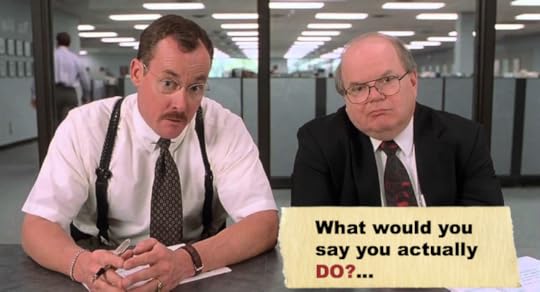 Image from the movie “Office Space”
Image from the movie “Office Space”Sales can be scary, so today I’m going to give you three ways to instantly improve your writing and also sell more books.��I’m blessed to have a broad base of experience/expertise which includes��corporate consulting and branding. I also spent years in sales and can honestly say,��Coffee really is for closers.��
Sigh.
What Do You DO?Among being a long-time author, ghostwriter, speaker and teacher, I also do a lot of freelance work in the corporate realm. Only mentioning this bit because it can help you guys improve.
I once accepted a leviathan project to redo copy for a website and rebrand a struggling company. I first explained my plan and reasoning in a detailed SWOT analysis. The owner was on board and signed off. The existing copy was outdated, bloated, confusing, and failed to appreciate the vast changes in our digital age culture.
I hacked through, reduced as much as possible and reshaped until the site showcased a truly fabulous company. To my horror, the owner came back and wanted me to add a deluge of changes which included mass amounts of extraneous information, charts, etc. and all of this content grossly deviated from the agreed rebranding.
I politely declined and we parted ways.
What’s funny is the owner never got around to changing the site from my version and was approached by a Richard Branson-type investor for potential partnership. Ironically, part of what piqued his interest was the site I designed.
Unlike the competition, the my version was visual, brief, and powerful, whereas the competition was like reading Wikipedia Articles from Hell.
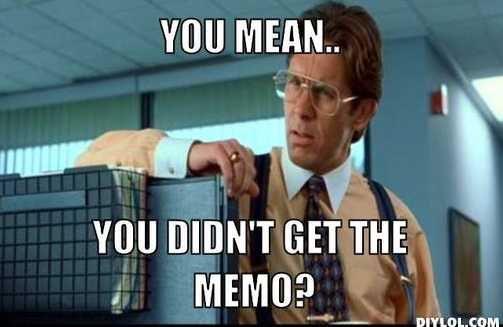
This desire to cough up too much and “oversell” is common (namely because regular people believe writing is easy and fail to hire a pro). Business owners are passionate and so they want to tell��EVERYTHING��about their services, industry, product, whatever. Also, overselling is a mark of the insecure. Think “padded resume.”
We authors can fall into a similar trap if we aren’t careful.
Attention Spans are ShrinkingThe average time spent on a website is roughly 54 seconds. I’d wager most people give a website 5.4 seconds to catch their attention and so we have a challenge when it comes to not only attracting the click, but also making people STAY.
***The same can be said with books. A cover and title catches the eye, but the opening sample pages only have a paragraph or five to win over the audience enough to stay and pay (and then read).
We can apply these business lessons to our writing, because we writers also have something to sell.
Our job is far tougher because 1) discoverability is a nightmare 2) less than 8% of the literate population are devoted readers 3) the remaining 92% equate reading with homework and a chore. Thus, we have the task of convincing 92% of the population to spend time they don’t have engaged in an activity they believe they dislike���and spend money to do it.
The other 8%? Sure they like to read books, but why��ours?
Omit Needless WordsVigorous writing is concise. A sentence should contain no unnecessary words, a paragraph no unnecessary sentences, for the reason that a drawing should have no unnecessary lines and a machine no unnecessary parts. This requires not that the writer make all his sentences short, or that he avoid detail and treat his subjects only in outline, but that every word tell.
Strunk & White
Trust the reader. If a character opens a door, we know he “reached out his hand” to do it. We assume he isn’t blessed with telekinetic powers unless we’re told otherwise.
Resist the Urge to Explain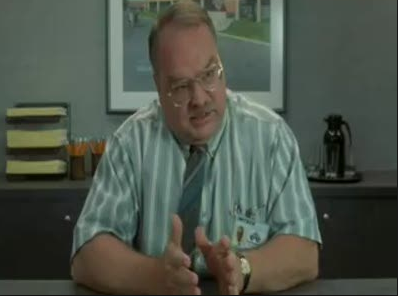 Image via “Office Space”
Image via “Office Space”This tenet applies in a lot of areas. We don’t need flashbacks or lengthy details of why a character thinks or acts a certain way. The more we leave to the imagination, the better. Years ago, Hubby and I fell in love with the mini-series��Defiance.��We ate through Season One and began Season Two.
Interestingly, Episode Zero was a compilation of all the flashbacks cut from Season One—the explaining how and what and why���and it was painful. I just wanted to hit stop and move onto the new episodes. The flashbacks added nothing and only wasted my time. The series was better without backstory being spoon fed to me.
I got it.
This over explaining happens a lot with characterization, but sci-fi and fantasy can be particularly vulnerable. I recently had a client who took��four hours to explain all her world building. Most of this information was for her, not the reader. She didn’t have to��explain every last detail about how her world had collapsed into a dystopian nightmare.
It just did.
All that had happened BEFORE her story even began, so the reader just accepts the world as it is presented.
Think about cartoons. Kids accept that a group of dogs can be public servants, talk and operate heavy equipment (Paw Patrol) or that a sponge with tighty-whities can work a burger grill at the bottom of the ocean (Spongebob Square Pants).
Belief is already suspended.
Value the Reader’s TIME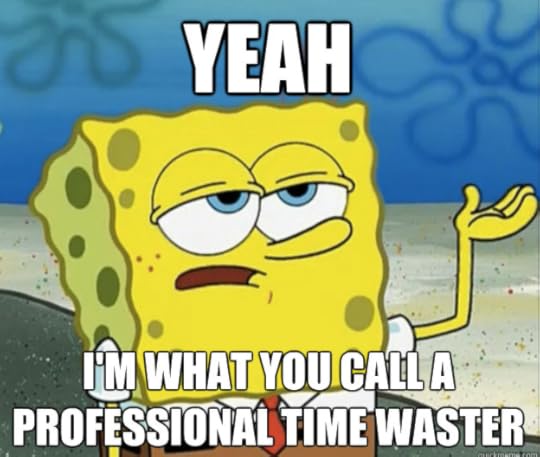
Get to the point quickly. The first sample pages of any book are our greatest selling tool. When I hear, “Oh, well the story��really��gets going by page 50″? My instincts tell me we probably need to cut 47 pages. When it comes to sales, we cannot afford to be boring.
Remember earlier I mentioned that we’re artists, but we also have a product to sell. In fiction, we’re selling escape. So think of it this way. How are you helping your customer escape reality?
Sales Route OneFirst, my dear (potential) reader, I need you to pack this list of gear, then sync this app on your smartphone. After that is downloaded, I’m going to text you coordinates for a geocache. Use the app to locate the cache, dig up the key, catch the L Train, wait for a guy with a blue hat and the code phrase is, “Duck, duck, goose.” He’ll then hail a cab and take you to a wonderful place you will enjoy.
Sales Route TwoOpen a wardrobe and step through.
Which would you choose?
What are some ways you refine your work? Are you guilty of overwriting? I know I’m working super hard to lean down all my writing. It is NOT easy. Are there areas you could condense? Stage action or explaining that could be chipped away?
I LOVE hearing from you!Can you articulate what VALUE YOUR book offers? What will your book make readers FEEL? How will it help them escape? What problem will it solve? Sales is all about offering a SOLUTION to a problem. So why is YOUR book a solution?
Does it reignite our belief in love? Offer us food for thought about modern culture? Challenge our beliefs? Provide an escape?
See if you can SELL me in the comments. Sales, like other skills, improves with practice.
If you keep scrolling, you’ll see ON DEMAND classes I have available. USA TODAY Best-Selling Author Cait Reynolds also has some fabulous OD classes that I’ll have listed by next post for all of your holiday shopping desires.
ON DEMAND OPTIONS from ME!ON DEMAND: Bring on the Binge: How to Plot a SeriesSIGN UP HERE. Use New20 for $20 off
ON DEMAND: The Art of Character: Writing Characters for a SERIESSIGN UP HERE Use New20 for $20 off
The Dark Arts: Building Your Villain ON DEMANDSign up HERE New25 for $25 offWorld Building 101: Playing ���Author GOD���Sign up HERE New25 for $25 offThe post 3 Simple Ways to Improve Your Writing & Increase Sales appeared first on Kristen Lamb.
October 19, 2022
Horror: Why We Love It, Hate It & NEED It
 Image via “Blade Runner”
Image via “Blade Runner”Horror, back in the day, represented some of the greatest works of literature. In my POV, it still does. Sadly, however, horror ran into a branding problem in the 70s and 80s and many began conflating slasher-hack-up-busty-coeds with horror.
Sure, slasher flicks are horror but not all horror are slasher flicks.
Horror is incredibly difficult to write well. Guts and gore might work for teenage boys, but to really be able to write something that gets under people’s skin? That makes them walk away and ask the hard questions? Fiction that allows a safe way for audiences to see and study all the ugliness in this world so they might better appreciate the good?
No simple task.
In a recent post, we delved into how guilt, shame and regret are the trifecta of great stories. We’ve discussed how probing the shadow sides of human nature is what can separate the mundane from the magnificent. We’ve talked about how crucial motivation can be in fiction (even motivations that might not make sense to the average person).
Think Dahmer.
Just not while eating.
Horror Serves a Purpose
All fiction has its place. Even horror. Some fiction is purely fun and escape and the world needs more fun and feel good. Certain books are simply a holodeck to get away from the mundanities of life, the overwhelming pressures of being an adult (kids, laundry, bills, car repairs). They serve as a place of rest and we all could use more of that!
But that isn’t all fiction.
Many writers (myself included) desire to go far deeper with our fiction, explore wounds and human issues, poke and prod at larger social dilemmas. We wield the narrative form like a scalpel, exposing what is necrotic or diseased so it might be removed and the patient (humanity) cured.
The worst diseases are often unseen. A person can look perfectly healthy yet be riddled with cancer, a ticking time bomb about to collapse. Horror appreciates that, frequently, what scares us the most, is a lot more ubiquitous than mega-tornadoes flinging Great White Sharks at the unwitting public.
It can be a government system, a religion, a medical system, a social norm we thought we could trust but if we ONLY knew the TRUTH!
Horror and History
I strongly recommend for any author to read Stephen King’s Danse Macabre. He does a really brilliant job of explaining the different kinds of horror, the tools in the author’s toolbox (shock, gore, fear). But what I loved the most was when King explained the history of horror.
Horror is almost always reflective of the times. It is no mere coincidence that Mary Shelley penned Frankenstein right at the dawn of the scientific age, when society was trading in the church pews for the laboratory. Then Bram Stoker’s Dracula came out during the notoriously prudish Victorian age and was a commentary (obliquely) on sex.
Fast forward into the 20th century and you’ll note all the alien invasion movies landed—*bada bump snare*—right about the time the Russians launched Sputnik. We can thank the nuclear age for all the giant creature features. Then Invasion of the Body Snatchers “coincidentally” hits theaters right around The Red Scare?
Move a bit farther into the 20th century and Texas Chainsaw Massacre broke ALL the horror rules. If one could make it until dawn, then SAFE! Except Vietnam was the first widely known unconventional war. The old rules no longer applied. No one was safe anywhere from anyone…night or DAY.
Then we get into the 70s-80s and all the movies parallel with The Satanic Panic. By the 90s, the USSR collapsed, The Wall had come down, and we (Americans) were feeling pretty good.
Horror then, pushed to its extreme, becomes its counterpart…comedy. Welcome the Scary Movie franchise.
***Later? Hello, Sharknado!
But this brief comedic respite of the 90s was short-lived. In the aughts zombies took off right about the same time the internet and social media hit the scene. The world was smaller than it had ever been and we had genuine fear of the mob.
Technology was changing faster than we could keep pace, quicker than we could appreciate the long-term ramifications. Were we part of the problem?
The Ring is a great exploration into that very concept.
These days? Every kind of speculative fiction is up for grabs. It is a terrifying world and audiences need/crave a tangible way to face and deal with what scares them the most.
What is Speculative Fiction?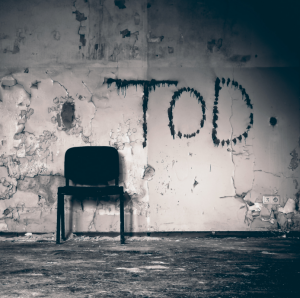
Speculative fiction is an umbrella term used to describe narrative fiction with supernatural or futuristic elements. This includes but it not necessarily limited to fantasy, science fiction, horror, utopian, dystopian, alternate history, apocalyptic fiction, post-apocalyptic fiction.
Basically, all the weird stuff.
(And forgive me because today we are using seriously broad strokes.)
But what makes the difference between the laughable 1950s science fiction matinees and the long-forgotten pulp fiction versus the works of Philip K.Dick? What makes The Road literature even though it’s a post-apocalyptic novella? Why is Heart-Shaped Box or Wool so deeply disturbing and simultaneously resonant?
Why do star-packed big-budget films like Jupiter Ascending fizzle? Yet Blade Runner is a science fiction staple worthy of being remade for the newest generations to enjoy?
Horror & PlotIt’s easy to dismiss speculative fiction as escapist fluff and some of it is. But, when we look to the great speculative fiction, we see the authors are disguising explosive social commentary within narrative so it can be viewed and experienced behind the safety-glass/containment field of story.
By using story, we writers place the reader into this world then (hopefully) generate empathy that is impossible to create any other way. I’ve seen the movie I, Robot countless times and I bawl EVERY time during this scene.
Yeah this is me…

Stepford Wives was a commentary on the women’s liberation movement. Animal Farm was a treatise on socialism and the dangers of groupthink. The peril that comes with handing over too much power to those who claim to have noble and benevolent intentions without asking the hard questions.
Brave New World was Huxley’s stab at a culture propelled by temporary highs, unlimited choices and instant gratification while rejecting that which endured (love, family, marriage), because that which lasted required time, sacrifice and work. He showed us an eerily accurate picture of what society driven to fulfill only hedonistic pleasure could become if we were not vigilant…and is now probably rolling in his grave.
*Makes note to write story about Huxley haunting TikTock*
Horror and CommentaryDo Androids Dream of Electric Sheep? was Philip K. Dick’s commentary on artificial intelligence and just because we can play God, should we? What sort of moral implications are involved? These are issues we are now facing for real, that are no longer fiction and we are being tasked with the tough questions.
Is it wise to create and sell sex robots that come with a “frigid” setting? What happens when we extend the logic of this? Blade Runner. We get Blade Runner. Also a bizarre escalation/reinvention of the previously mentioned Stepford Wives.
All these great science breakthroughs that float across our newsfeed are now fertile ground for new and possibly even better stories that prod the science with ethical dilemmas.
We show the world it’s upside down and maybe even ways to right it.

I believe that the great speculative fiction writers have always been the conscience of culture, the voice that whispers things like, “Just because we can, doesn’t mean we should.” Or, “This really is a big deal and can go ugly really easily.”
Horror does a lot of that as well. Good horror writers tap into the subconscious angst and gives it a face. What happens when society is allowed to continue to devalue human life? When mobs are handed permission to call the shots? Let’s chat about this after watching The Purge.
 In Horror: To Make it BIGGER, Make it Smaller
In Horror: To Make it BIGGER, Make it SmallerWhen we care about everything, we care about nothing. Additionally, the human mind can’t truly grasp the loss of a billion lives. It doesn’t resonate because it can’t compute.
Thus the great spec-fic plots make the big small. We tell a small story of one person or a group of people as it plays out on the far larger stage. World War Z anyone?
This is why so many Hollywood movies about asteroids hitting the planet fizzle while The Road simply guts us.
Not All Big Stories are BigSometimes speculative fiction isn’t addressing something big, rather it dives into the intimate and deeply personal. Heart-Shaped Box is about a vengeful ghost out to destroy an aging rock star and anyone he loves. While the supernatural elements are terrifying, what is so beautiful and moving about this story is how the characters are forced to face and conquer inner demons they would have been happy to bury if not running for their lives.
The human story is what elevates this from a forgettable scary book into a work that prods at the deep dark places of the characters (and by extension the reader).
Character
Writing speculative fiction is really tough. It has a lot in common with literary in that it can turn preachy or fall flat so easily. Too many writers get fixated on world-building, when world-building is backdrop and can never substitute for story.
Spec-fic is tough and I swear it is the souffle of fiction. If we aren’t careful and look away one second? Yeah.
Plot of course matters in that we need a core story problem to drive the story, but characters are vastly important (possibly even more important). We must develop multi-dimensional characters with flaws and problems to set on this adventure because gizmos, gadgets, spaceships, magic, chainsaws, gore and ghosts alone are not a story.
We don’t need a bigger asteroid…we need a better story. Story is what is going to rattle the cage, not the two-ton spider. More blood or teeth won’t scare us and won’t change us.
In a world where we are overwhelmed with doom and gloom, where any debate on-line easily devolves into ranting, I think spec-fic is more important than ever in human history. Story is the place where the armor goes off and the heart is exposed and then able to be changed, fixed, remolded, and softened.
What are your thoughts?I love hearing from you. Do you love horror? Dystopian? Science fiction? What are your favorites? I LOVE HEARING FROM YOU! What makes spec-fic great? Or fall flat? What are your pet peeves?
CLASSES for Motivation!ROMANCE***All classes have a $25 discount using New25. It did have a limit but since everything has been weird, I am just going to give that as a treat. The BUNDLES still work out cheaper, just for the record and all classes come with a free recording.
***AGAIN, check out the BUNDLES if you want more than ONE!
Baby, It���s Hot in Here! Writing High Heat Romance
FRIDAY, OCTOBER 28sth (7:00 PM to 9:00 PM EST)
BUNDLE! Double Dare TWO Romance classes, ONE great price!
Includes Bad Boys and Tease
BUNDLE! Triple Threat! THREE classes, ONE great price!
Includes Bad Boys, Tease, and High-Heat Romance
ON DEMAND OPTIONS from ME!ON DEMAND: Bring on the Binge: How to Plot a SeriesSIGN UP HERE. Use New20 for $20 off
ON DEMAND: The Art of Character: Writing Characters for a SERIESSIGN UP HERE Use New20 for $20 off
Spilling the Tea: Blogging for Authors ON DEMANDSign up HERE and Use New25 for $25 off
The Dark Arts: Building Your Villain ON DEMANDSign up HERE New25 for $25 offWorld Building 101: Playing ���Author GOD���Sign up HERE New25 for $25 offThe post Horror: Why We Love It, Hate It & NEED It appeared first on Kristen Lamb.
October 10, 2022
Motivation & How What Drives Us Defines Us

Motivation is at the core of everything human related. It’s the reason for the common axiom in law enforcement: Before you look at outlaws, look at in-laws. We humans LIKE to believe we are super complicated when, by and large, we are anything but.
Articulating character motivation can help us when it comes to better storytelling. The best stories are, at their heart, SIMPLE. Notice I said, at their heart. Storytelling might be simple, but so is a top-notch souffl��. In fact, souffl��s are an art form all to themselves.
Simple? Yes. Easy? By no means.
Yet, regardless of the time period, humans don’t change all that much. At least their core motivations.
For instance, the picture above. I spent years in ballet which I can attest is VERY hard on the body. My feet are now paying a heavy price. Though I loved it, I am not interesting enough to make a good ballet story.
But what about Nina in Black Swan? The motivations that drive her passion for ballet border then tip over into madness. She has always been her mother’s puppet. Her mom had to retire as prima ballerina because she ended up pregnant. So clearly it’s Nina’s fault Mom failed to live out her dreams.
 This is NOT the bedroom of a grown woman.
This is NOT the bedroom of a grown woman.Thus, Mom lives vicariously through her daughter. She controls and infantilizes her. Nina only has an illusion of agency. Nina punishes herself to perfection to meet a standard one would have to be mad to attain.
Nina loves ballet is vastly different from Nina is an unwitting puppet struggling to break free from a tyrannical mother and establish self-sovereignty.
She believes her motivation is one thing when it is very, very different.
Motivation and Fiction
WHY does a character WANT or NOT WANT a certain thing? Conversely why are they motivated to AVOID one thing or another?
Motivation is the center of the spiderweb that shoots out spokes into everything else.
Tug on one part of the web and the spider scrambles to hide, hunt or attack. Tear one part of the web down and what is first of that spider’s Things To Do List? Rebuild that part of the web exactly the same as it was. Or, if that is impossible, spin a new web that is as close to the old one as possible. A pattern ingrained into that spider.
We are not so different, or much smarter in ways.
Until you make the unconscious conscious, it will direct your life and you will call it fate.
C.G. Jung
If we do not take some time to get to know our characters, it will be painfully obvious on the page. They lack form, dimension, and come across as paper-doll- caricatures that are all so eerily alike that, without dialogue tags, we’d be unable to discern one character from another. Also, we risk them being dull, predictable and, did I mention dull?
In a book market with millions of competitors if there is one thing we cannot afford, it is to be dull.
The WHY Makes the WHO
Motivation defines the (hu)man. This will play out on two levels. What is it the character consciously believes he wants versus what does he truly want but is too terrified/damaged/proud/ignorant to recognize?
The recent Netflix series Dahmer is a sobering example. I’m a true crime junkie and Dahmer’s case, to me, was always very tragic from every angle. Parcast’s Serial Killers does an exhaustive study that would be far more comprehensive than any mini-series.
I won’t get into the gore because that is ancillary to the point. The point is Dahmer’s motivation. Dahmer was terrified of being abandoned. Because his abandonment issues (among other things) were never addressed early they metastasized into the makings of a monster and innocent people paid a terrible price.
I also believe part of what “made” Dahmer was he suffered from a life-threatening double hernia as a very young child and that is a MAJORLY complicated surgery even in 2022. Back then, the only anesthesia was ether. It wouldn’t be unreasonable to posit he suffered a TBI because there are just SO many accounts that he was “never right” after the surgery and all the symptoms align with a TBI.
NONE of that in any way excuses what he did, but these elements are key. In fiction? Motivations—even ones that are distorted—make the character believable. No one does anything in a vacuum.
Does mental health impact motivations?
Of course! If we are building a character, then any kind of brain injury, mental illness, abuse, substance abuse cannot help but influence—and likely distort/pervert—motivations.
Richard Chase, The Vampire of Sacramento is another example and Parcast does the best deep dive on both Dahmer and Chase in my POV. Chase was seriously mentally ill and his mother constantly interfered with him getting proper treatment…which of course only allowed his mental illness to become far more acute.
So why serial killers? Other than why not? The FBI’s BAU (Behavioral Analysis Unit) is actually a relatively modern invention. The founders postulated that—at least in large part—that determining the WHY would help identify the WHO.
Mental illness, PTSS, brain injuries can create very distinctive patterns in behavior. It can twist noble motivations into the darkest forms of depravity or skew what that person believes is reality.
Motivation and Antagonists The Corinthian via Netflix’s “The Sandman”
The Corinthian via Netflix’s “The Sandman”All stories need a core antagonist, a brain behind the story, or what I call The Big Boss Troublemaker. Without the core antagonist, the MC (main character) is just some poor schlep without a purpose.
One HUGE mistake for new authors is they fail to deep dive and ask the hard questions. WHY does the BBT want X, Y or Z? What is the core motivation? The more relatable the motivation, the better the antagonist/villain (they are not always the same thing).
Since we’ve already brushed the topic of serial killers, what about Buffalo Bill from the iconic Silence of the Lambs? Buffalo Bill didn’t kill for the sake of killing. He had a very specific type of victim to fulfill his “metamorphosis” fantasy, which, in many ways, made him a deeply resonant and dimensional character.
Why does Hannibal Lecter help? Because of HIS motivations. He is a god in his own mind and very much lawful evil. He exacts his version of “justice” accordingly. Much like the angry yet benevolent god he believes himself to be.
Something NOT involving serial killers?Motivations are usually very simple, which is one of the reasons jails are so full. The usual suspects are rage, greed, revenge, lust/love. If we take a peek at the Seven Deadly Sins or Maslow’s Hierarchy of Needs, we can find the overall motivation. Our job, after finding the essential core, is to then layer on the nuance.
Many “bad guys” have motivations that aren’t all that unique.
In Dune the antagonist (The Emperor) wants total control of the spice and thus the known universe for very practical reasons—power, money, safety and all that jazz we see in the lower tiers of Maslow’s Hierarchy and even some in the upper.
In The Sandman, a wealthy occultist trying to capture Death unwittingly captures Morpheus (The Sandman) by mistake. His motivation? Grief. He’s a father who wants his son restored to life and he longs to cheat Death.
The Sandman is a FABULOUS series for all kinds of characters (antagonists) with vastly complex natures and motivations, by the way. LOVE The Corinthian. The series does a great job of following the book as well.
Antagonists are Not Always Evil Image via “The Joy Luck Club”
Image via “The Joy Luck Club”The Joy Luck Club is a great example. The BBT could be seen as toxic behaviors masqueraded as good intentions as acted out by all the females in the club. Each generation WANTS to break the toxic patterns but they keep changing geography instead of the conditions of their hearts. They fail to recognize their damage, so instead of healing the wounds, they pass them down.
They run from old shame/guilt instead of facing their demons and dealing with them. Because they fail to defeat their demons, they pass them onto their daughters. Despite the best of intentions to do everything differently, everything remains the same.
Thus June is the protagonist turned hero because she alone breaks the cycle and sets the example for the other daughters.
The antagonists in The Joy Luck Club have excellent motivations. They only want what is best for their daughters. The problem lies in their lack of self-awareness as expressed by Jung above.
Motivation and Main Characters
If we take some time to get to know our characters before we write, it’s wise to ask what they want and why they want it. Then, circle back and poke holes in that because, as Dr. House wisely remarked, “Everybody lies.”
Our main character might avoid conflict because she came from an abusive family and has defined all conflict as inherently bad/unproductive. She might be overly confrontational because she came from an abusive family and never learned discernment. She is willing to die on every hill and that not only exhausts her, but everyone around her.
If your character wants love, a relationship, marriage…then WHY? Articulate that. Then call BS, peel back the candy-coating and get to the meat of the matter.
Motivation ExamplesMy character wants to be married so she’ll be happy.
Actually, my character wants to be married because her mother always told her no one would want her and she’d always be alone.
Do you see how the first motivation is almost childlike in simplicity and doesn’t make for the most interesting story? What about the second one? Much better.
How about looking at specificity and upping the ante?
My character wants to have children because, unless he finds a mate suited for his magical bloodline, his kind will become extinct.
Good. Not too shabby.
My character wants to have children because, if his kind goes extinct, then there will be no Watchers left to guard the Seven Realms and keep Hell from extending its borders.
A bit more specific and, frankly more interesting. MUCH bigger stakes and ticking clock already built in. Which might be all well and good, but what if the MC no longer cares? He’s fed up with humans, his kind dying to defend them and their endless entitlement and ingratitude?
Then, you’d have to tweak his motivation. Maybe it begins as duty until you (as story god) offer him something about humanity worthy of saving. That is what we call arc  .
.

Ultimately, everyone in our story should have a reason for why they want what they want (whether they are conscious of it or not). Characters just randomly doing things because we need them to is called cheating and readers will, rightfully, feel ripped off.
Granted, when you do backstory, feel free to go into as much depth as you want. I would merely caution that too much preparation can often be what we call productive procrastination. Just do a little bit of a “value sketch” and that will add so much more resonance to your story. Trust me.
Even if it is a matter of stopping along the way and asking, “Hey, I have Jane Doe doing X, but why does she want that? What is really driving that?” is a great place to begin.
What Are Your Thoughts on Motivation?Can you see how characters, like in life, self delude? How this can be fabulous for adding depth to the story? Motivation can add a lot to the character’s personality and help make them seem more real than the people we meet every day.
What are some examples of movies, series, books, or characters that really gripped you with their motivations? What are some examples from YOUR work/writing? How did you deepen their motivations? In what ways were they self-deluded? Or can you see now how you might be able to dig even deeper?
I love hearing from you! REALLY!
And, since NaNoWriMo IS coming up, we do have some new classes. I need to re-list the world-building classes when I get a chance.
As always, THANK YOU for being here and your support.
CLASSES for Motivation!ROMANCE***All classes have a $25 discount using New25. It did have a limit but since everything has been weird, I am just going to give that as a treat. The BUNDLES still work out cheaper, just for the record and all classes come with a free recording.
***AGAIN, check out the BUNDLES if you want more than ONE!
Bad Boys: Can���t Live with Them, Can���t Write Without Them
TUESDAY, OCTOBER 11th (7:00-9:00 PM EST)
Tease: Keep the Romance Going���All Book Long
FRIDAY, OCTOBER 14th (7:00-9:00 PM EST)
Baby, It���s Hot in Here! Writing High Heat Romance
FRIDAY, OCTOBER 21st (7:00 PM to 9:00 PM EST)
BUNDLE! Double Dare TWO Romance classes, ONE great price!
Includes Bad Boys and Tease
BUNDLE! Triple Threat! THREE classes, ONE great price!
Includes Bad Boys, Tease, and High-Heat Romance
Writing BusinessBurb Writing BITES (But Doesn���t Have To)
ON DEMAND OPTIONS from ME!ON DEMAND: Bring on the Binge: How to Plot a SeriesSIGN UP HERE. Use New20 for $20 off
ON DEMAND: The Art of Character: Writing Characters for a SERIESSIGN UP HERE Use New20 for $20 off
Spilling the Tea: Blogging for Authors ON DEMANDSign up HERE and Use New25 for $25 off
The Dark Arts: Building Your Villain ON DEMANDSign up HERE New25 for $25 offWorld Building 101: Playing ���Author GOD���Sign up HERE New25 for $25 offThe post Motivation & How What Drives Us Defines Us appeared first on Kristen Lamb.
September 19, 2022
Guilt: How Shame, Regret & Guilt Shape Story

Guilt is a tricky bugger, even in real life. What is guilt? Why does it have so much power? How can we use guilt in story and why would we? Before we unpack this sticky subject let’s begin, at least, with a definition.
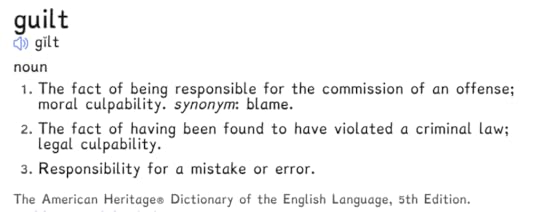
Obviously, the story will dictate which definition we use. We might even use all three! Though—as most of us know—one doesn’t have to break any laws to still be crippled by shame, remorse, and regret.
An interesting aspect of guilt is that it may or may not be “valid.” Why do I use “valid”? Because all feelings are “valid” as in we DO FEEL THEM. But, do we deserve to feel them?
I’ve written, previously, on NPD (Narcissistic Personality Disorder). Narcissists, by definition, do not or can not feel guilt. This is one of the reasons they leave such destruction in their wakes.
Most “normal” people have a conscience. We have this inner moral compass that sounds alarm bells either before or after we’ve crossed a line. Obviously, we’d love to hear the warnings BEFORE crossing a line, but humans are not robots.
We have flaws and emotions. Sadly, when emotions run high, we might say or do something that, at any other time, we’d never even consider. This is where we get “crimes of passion.” But, we also say things when we are angry, sick, exhausted, stressed, etc. and just plunge head-first into “The Stupid Zone.”
Guilt and Remorse
Guilt can drive people mad. Just open up Edgar Alan Poe’s The Tell-Tale Heart for such a peek. Though Poe’s short story is an extreme sampling, it isn’t terribly far from the truth.
The acute emotions guilt elicits are among the reasons so many criminals get caught. Eventually, the weight of their shame is too much and they cannot go on without confession (to a hotline, a friend, a lover, a spouse, a cellmate, an officer of the law, etc.).
It’s also why people having affairs, or embezzling, or committing some kind of serial “offense” can get sloppy. Guilt underpins their actions. They WANT to be caught because they cannot go on without a reckoning.
***Note: Psychopaths are different in this aspect. Frequently their lack of remorse only feeds their god complex. Arrogance makes them sloppy, not any need for unburdening.
False Guilt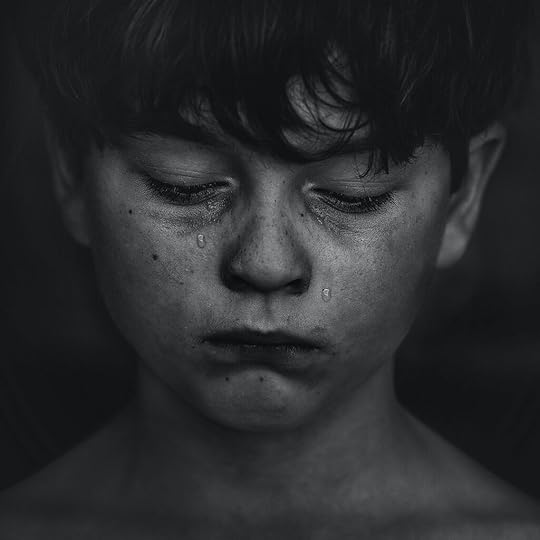
There is a real difference between feeling guilt/shame because we’ve actually wronged someone and need to do our best to make amends/change bad behavior versus phony narratives.
For the record, I am NOT a mental health professional, but I’ve seen my share. I also write because it’s cheaper than therapy. Like many creatives, I draw a lot (though not all) of my inspiration from experience. Just remember this is namely a writing blog, not a mental health blog, though it is really easy to get the two confused.
False shame is particularly insidious. It can destroy all hope, dreams and joy. Why it is uniquely evil? Because we cannot repent for something we didn’t DO. False shame is when we needlessly take on the shame and guilt for others.
If I yell at you and act like a complete jerk, then I DID THAT. I can apologize, make amends, ask for forgiveness, and, if possible, request an opportunity to rebuild a trust I damaged or destroyed.
There is agency.
The False Guilt Narrative
But what about the abuse victim who believes they should have said more, done more, fought harder? What about the person conned out of their life savings? The man or woman who falls for a catphishing scheme/love scam?
One of the reasons so many victims remain silent is because of shame. How could they be so naive? So trusting? Of course, they deserved what happened. A better human being wouldn’t have been damaged, fooled, grifted.
This narrative can come from multiple vectors. It can come from culture/society who shifts blame to the victim. She shouldn’t have dressed that way, drank that much, acted like that. Everyone KNOWS not to click on those links! What idiot gives someone ten grand without a contract? How did you NOT know the “love of your life” wasn’t real? What kind of LOSER falls in love with someone they’ve never even MET?
***For the record, lots of people. Penpals were a thing and sparked a lot of marriages so haters can just shut up.
Also, many abusers either a) groom victims ahead of time or b) target the weak and vulnerable. Like wolves who stalk the perimeter searching for the weak, sick, lame, or lonely, abusers “hunt” in much the same way.
When predators do lure in the prey, they project a false version of events onto the victim to keep their cover. If an old woman conned out of $10,000 for a roof that never happened is too ashamed to go to the police? And feels guilty for being a fool? The con can continue.
Thus, whether it’s being a victim of abuse, a rape, a theft, a con, the one Ace up the abuser’s sleeve will always be “false guilt.”
False guilt almost always guarantees silence. Additionally, the victim will spend years punishing themselves while the offender goes on their merry way committing the same offenses over and over and over.
How “Penance” Manifests
There is penance, and then there is “penance.” When we are in a more emotionally healthy place, it’s easier to discern who should own the guilt and then what to do with that guilt. If we were a victim, then that guilt doesn’t belong to us.
It might take therapy, faith, healing groups, or some other sort of mental health intervention (or a MIRACLE), but the ideal is to finally accurately identify the genuine owner of the guilt, and then leave it for the offender to take or leave.
Remember the main problem with false guilt? Since WE aren’t the actual OFFENDER, then WE can never really do anything about a crime we never committed. If that guilt remains inside, this malignancy goes metastatic into all areas of our lives.
Many people self-medicate. Maybe that’s alcohol or drugs, but it could be shopping, overeating, rescuing people, gossip, gaming, gambling, religion, compulsive exercise, controlling others, or any combination of the above and more.
Energy Must Be RELEASED
Since real guilt and false guilt are potential energy, we feel it inside ourselves building and building until we need to release that energy. More often than not, we generally don’t “release” this emotion in the healthiest of ways. We might numb it with substances or activities until eventually comes roaring out at the most unexpected times.
Years ago, when my grandmother was dying of Alzheimer’s, I was hurting. Badly. I’m a fixer, but that? I couldn’t fix, I couldn’t DO enough. There was no way to help, not really. No way to make her better.
I was a brand new mom with a husband who’d just gotten orders to deploy to Afghanistan and so, when the manager at my local Target intimated I’d stolen a box of baby diapers.
I…went…NUCLEAR.
Was it really about the diapers? Really? Or was that poor manager merely the first target of opportunity where I could vent all my anger, rage, and feelings of worthlessness and helplessness?
Real Penance is Different
When we feel genuine shame, we have agency. Why? Because we DID the thing. We aren’t carrying someone else’s baggage. There are healthy (though definitely NOT easy) avenues to make peace and release our guilt.
The problem with authentic penance is that, while it is great in life, it is STORY DEATH.
Great stories are all about messed up people making really bad decisions until the crucible of the story plucks their heads out of their metaphorical tail ends and gives them what they needed all along…enlightenment.
If they’re abusive, controlling, manipulative, destructive, then the story (over the first two acts) should strip away all their excuses until only THEY remain (Act III). Them and the wasteland of ruined relationships, shattered dreams, and hollow illusions that have been their sustenance.
STRIP IT AWAY!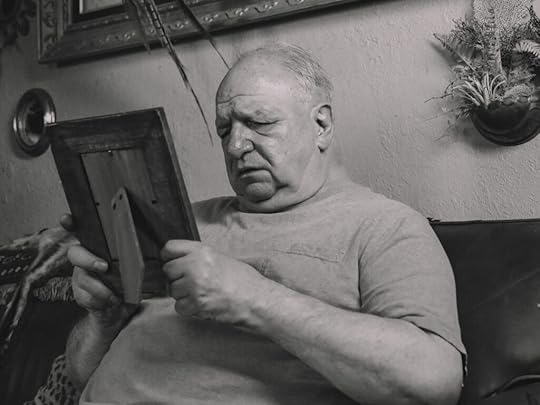
If we are going to talk about this topic at all, then we need to ask a critical question, “Why do people NEED story?” Because we are HUMAN. From stick figures on cave walls to screenplays and Scrivner, it doesn’t matter.
Humans need and crave story because story is a safe way to hold a mirror to our souls so we can do the honest work. If we are a horrible human being (and I have been one), we aren’t exactly open to friends, family or even a therapist telling us, “Hey, your life sucks because you’re a pretty terrible person. You’re controlling, manipulative, and want grace but never give it.”
OUCH.
BUT, when we SEE a character with those same flaws go from stumbling in the dark over the corpses of dead relationships, failed dreams, and lost jobs, and THAT person gets the AHA! We are there on the journey with them and can learn. There are footsteps we can follow in.
Also, if there is hope for them, there is hope for us. The cycle CAN be broken. We can identify WHAT we’ve done or are doing wrong, then take steps to make it right.
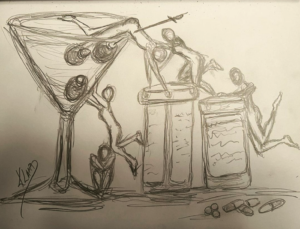 Cycle of Shame (from my sketch book)
Cycle of Shame (from my sketch book)Conversely, if we’re self-medicating, self-harming, believe life isn’t worth living, or we are alone and depressed because we’re carrying guilt that isn’t ours? That’s bad. If we allow people to walk all over us, take advantage, and treat us like a dumping ground for all their toxic waste (I’ve been this person too!), then story—again— holds up a mirror!
We can SEE the “WELCOME” written on our foreheads. No wonder we’re mistaken for doormats! We might even see the demons on our back that we should have never offered to carry in the first place. They didn’t belong to US!
What About Story?
Hopefully, after all this, you might be able to see a bit more clearly. When we create a story problem, what purpose does it serve?
Now, story operates on a minimum of two levels. There is plot arc and character arc. Thus when I ask the story is about, there are TWO answers.
I’ll riff an example.
My story is about a newly released ex-con who must to find the woman who gave her up for adoption in order to save her estranged daughter from a life-threatening genetic disease.
Okay, so we unpack.
Clearly this person had some sort of a substance abuse problem, likely brought upon by her own false or real shame. A problem bad enough to land her doing hard time.
Being given up for adoption can create feelings of being unworthy or abandoned. She has her own child that she then FAILS because of her addictions. Now, free from jail, she wants to make amends but it might be too late.
How do we know if the protagonist WINS?
If at the end of our story, she is still CLEAN, able to find mom (who never wanted to be found) and then convince her to help try and save the daughter/granddaughter?
PLOT PROBLEM is solved.
But, there is also the CHARACTER ARC. Maybe prison was enough to change the protagonist enough to at least begin the Hero’s Journey. Locked away, she got clean, was able to get help, therapy, a support group BUT she has to go back to the real world. There’s a lot of carnage and collateral damage she’ll HAVE to face.
She is going to HAVE to CHANGE in order to successfully arc as a character. This will not (and SHOULD NOT) be easy. Old coping mechanisms are the low-hanging fruit. Our character will try and fail, but (ideally) we’ll root for her to win.
So when we ask what is my story about? My second answer is:
My story is about an addict who faces her demons and conquers them and, in doing so, restores her relationship with her estranged daughter.
Whether daughter lives or dies doesn’t matter. All that matters is the protagonist finds the birth mother and convinces her to TRY to help. And, in doing this great act of courage, repairs enough of the damage to be a story-worthy ending.
Whether the ex-con ends up friends with birth mother, again, is the author’s choice. Maybe she does, maybe she doesn’t. The goal wasn’t to restore the relationship with her MOM, rather to restore it enough to mend fences with her DAUGHTER.
If we take prison, and drugs, and genetic disease out of the picture, we could write that CHARACTER story countless ways.
Guilt and Story
Without pain, suffering, sickness, death, and evil, a protagonist is nothing but some poor schlep without a purpose. Pretty prose does NOT a story make. Audiences are there for the suffering. Why?
Because THEY are suffering and they want a story to show them that good can win, love can conquer all, there really is light is the end of the tunnel, that life has meaning, and there are some things worth fighting and YES, maybe even DYING for.
Even if you don’t write those kinds of “happily-ever-after” stories, then audiences should walk away rattled out of their apathy, shaken from their indifference. Some stories should offend, shock, and horrify because the human response is to DO SOMETHING. Stories make the world a better place.
Regardless of what kind of stories you write, the purpose is always the same. Stories speak to the souls of the audience. There is resonance. They might not see ALL of themselves in the characters, but there should be at least enough that the reader (audience) is willing to endure the ride and all the trials and tribulations along the way.
Guilt, shame, regret, pain, hopelessness, helplessness, rage, all have their counterpart (which is a clear compass for your ending).
So before you write, think, “What is my story about (plot/character)?” and “How does my story END?”
If we identify the pain, then intuitively, we know the cure.
What are Your Thoughts?First, a reminder. MAKE SURE to scroll down, check out all the new classes and get your spot! Writing is NOT easy, and we are here to help! All classes come with a FREE recording.
Are you being too easy on your characters? Making them “too perfect?” When trouble rears its head, do you hold back? Or could you do a better job of torturing your characters?
What are some of your favorite movies, series, books, plays, etc. that really NAILED guilt, shame and suffering?
For those who follow my blog, you already know I LOVE The Joy Luck Club (movie and book), Fried Green Tomatoes, Steele Magnolias, Luckiest Girl Alive, Heart-Shaped Box, Girl on a Train, Breakfast at Tiffany’s (movie and book), Sharp Edges, and so many more.
Series? I love Ozark, American Horror Story (Seasons 1-4, and the first half of Season 10), Vikings, The Last Kingdom, Stranger Things, and all of these could be BOOKS about technique in and of themselves.
What about you guys?
SIGN UP! NEW UPCOMING CLASSES!***REMEMBER all classes INCLUDE a FREE RECORDING with purchase!
USA Today Best-Selling Author, Cait Reynolds will be teaching���
World Building***Make sure to look at the BUNDLES if you want more than ONE!
Gaskets & Gaiters: Steampunk & Gaslamp World Building
FRIDAY, SEPTEMBER 23, 2022 (7:00-9:00 EST)
Lasers, Dragons, & Swords! World-Building for Fantasy & Science Fiction
September 27, 2022 (7:00 P.M.-9:00 P.M EST)
Backstory: The Yarn Behind the BookFriday, September 30, 2022 (7:00 pm ��� 9:00 pm EST)
The Story Bible: Keeping Track of the Voices in Your Head���and More
Friday, October 7, 2022, (7:00 p.m. ��� 9:00 p.m. EST)
BUNDLE! World in a Box: Playing God Has Perks
THREE CLASSES, ONE LOW PRICE!
BETTER BUNDLE! World in a Box PLATINUM
FOUR CLASSES, ONE LOW PRICE!
ROMANCE***All classes have a $25 discount using New25 before 10/4/22
***AGAIN, check out the BUNDLES if you want more than ONE!
Bad Boys: Can���t Live with Them, Can���t Write Without Them
TUESDAY, OCTOBER 11th (7:00-9:00 PM EST)
Tease: Keep the Romance Going���All Book Long
FRIDAY, OCTOBER 14th (7:00-9:00 PM EST)
Baby, It���s Hot in Here! Writing High Heat Romance
FRIDAY, OCTOBER 21st (7:00 PM to 9:00 PM EST)
BUNDLE! Double Dare TWO Romance classes, ONE great price!
Includes Bad Boys and Tease
BUNDLE! Triple Threat! THREE classes, ONE great price!
Includes Bad Boys, Tease, and High-Heat Romance
Writing BusinessBurb Writing BITES (But Doesn���t Have To)
ON DEMAND OPTIONS from ME!ON DEMAND: Bring on the Binge: How to Plot a SeriesSIGN UP HERE. Use New20 for $20 off
ON DEMAND: The Art of Character: Writing Characters for a SERIESSIGN UP HERE Use New20 for $20 off
Spilling the Tea: Blogging for Authors ON DEMANDSign up HERE and Use New25 for $25 off
The Dark Arts: Building Your Villain ON DEMANDSign up HERE New25 for $25 offWorld Building 101: Playing ���Author GOD���Sign up HERE New25 for $25 offThe post Guilt: How Shame, Regret & Guilt Shape Story appeared first on Kristen Lamb.
September 14, 2022
The Seven Deadly Sins of Prologues

To prologue or not to prologue? That is the question. Does our story actually need one, or are we cool to just dive in? Great question. Prologues can be tricky. The problem with the prologue is it has kind of gotten a bad rap over the years with agents and editors. They generally hate them.
Why?
In my opinion, it is because far too many writers don���t use prologues properly and that, in itself, has created its own problem. Because of the steady misuse of prologues, many readers skip them.
Thus, the question of whether or not the prologue is even considered the beginning of your novel can become a gray area if readers just thumb pages until they see Chapter One.
***Critical point here. SOME GENRES use prologues as a staple and readers won’t skip them. This said, we still need to make sure we understand the purpose of a prologue so we’re using this literary device the way it was intended. And if we aren’t, well…
We gotta know the rules to break the rules and all that jazz  .
.
So without further ado���
Prologue Sin #1 If our prologue is really just a vehicle for massive information dump���
When I teach or consult, I often recommend writers free-write a background. Just get it all down. This helps get all of that precious backstory out of our system.
This is a useful tactic. First, it can help us see if our characters are psychologically dimensional. Are they too perfect? Do they have story-worthy problems, issues, inner demons, unfinished business? Free-writing can also provide us with a feel for the characters��� subconscious motivations, which will help later in plotting (e.g. love, revenge, acceptance).
I have a little formula for plot.
Background gives us:
Motivations ���> Goals���> a Vague/Dumb Plan–> a Better Plan���> the Solution/Final Confrontation–> Resolution/ Arc
A bit of free-writing can help us get an honest look at our ideas. Often, an idea that piques our interest is merely clever, but might not be robust enough for a novel. So make it a short story or rework it and add some meat.
We can also see what details are salient to the plot versus which ones we can keep to ourselves. This helps us better fold the key details into the plotting process so that this vital information can be blended expertly into the story real-time.
Many new writers bungle the prologue because they lack a system that allows them to discern essential details or keep track of important background details. This makes for clumsy writing, namely a giant ���fish head��� labeled prologue.
What do we do with fish heads? We cut them off and throw them away. If free-writing isn’t for you? No problem. The internet has all kinds of options. The point is simply to WRITE and be able to organize story-worthy information.
Prologue Sin #2 If our prologue really has nothing to do with the main story.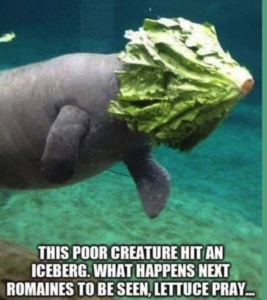 Like this MEME!
Like this MEME!This point ties into the earlier sin. Do this. Cut off the prologue. Now ask, ���Has this integrally affected the story?��� If it hasn���t, it���s likely a fish head masquerading as a prologue.
Prologue Sin #3 If our prologue���s sole purpose is to ���hook��� the reader.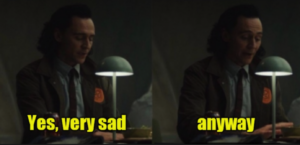
If readers have a bad tendency to skip past prologues, and the only point of our prologue is to hook the reader, then we have just effectively shot ourselves in the foot.
We need a great hook for the prologue, but then we also need another hook in Chapter One. If we can merely move the prologue to Chapter One, and it not upset the flow of the story, then that is a lot of pressure off our shoulders. There’s no need to be “doubly-interesting” if it’s unnecessary.
Prologue Sin #4 If our prologue is overly long���
Prologues need to be short and sweet and to the point. Get too long and that is a warning flag that we might not be starting our story in the correct place. Trust the reader. They’re smart and the LOVE secrets, so be a secret-keeper!
Prologue Sin #5 If our prologue is written in a totally different style and voice that is never tied back into the main story���
Pretty self-explanatory…and acted out by sea urchins. AWWWWWW!
Prologue Sin #6 If our prologue is ��ber-condensed world-building���World-building is generally one of those things, like backstory, that can and should be folded into the narrative. Sometimes it might be necessary to do a little world-building, but think ���floating words in Star Wars.���
The yellow floating words that drift off into space help the reader get grounded in the larger picture before the story begins. But note the floating words are not super-detailed Tolkien world-building. They are simple and, above all, brief.
Prologue Sin #7 If your prologue is there solely to ���set the mood������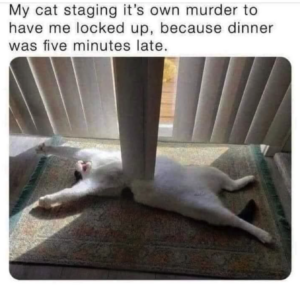
We have to set the mood in Chapter One anyway. So, like the hook, why do it twice if we don’t have to?
Prologue VirtuesNow that we have discussed the Seven Deadly Sins of Prologues, you might be asking yourself, ���So when is it okay to use a prologue?���
Glad you asked.
Prologue Virtue #1Prologues can be used to resolve a time gap with information critical to the story.
Genre will have a lot to do with whether one uses a prologue or not. Thrillers generally employ prologues because what our hero is up against may be an old enemy.
In James Rollins���s The Doomsday Key the prologue introduces the ���adversary��� Sigma will face in the book. Two monks come upon a village where every person has literally starved to death when there is more than an abundance of food.
Many centuries pass and the very thing that laid waste to that small village is now once more a threat. But this (the prologue) gives the reader a feel for the fact that this is an old adversary. The prologue also paints a gripping picture of what this ���adversary��� can do if unleashed once more.
The prologue allows the reader to pass centuries of time without getting a brain cramp. Prologue is set in medieval times. Chapter One is in modern times. Prologue is also pivotal for understanding all that is to follow.
Prologue Virtue # 2Prologues can be used if there is a critical element in the backstory relevant to the plot.
The first Harry Potter book is a good example of a book that could have used a prologue, but didn���t (likely because Rowling knew it would likely get skipped). Therese Walsh in her fabulous blog Once Before A Time Part 2 said this:
J.K. Rowling���s Harry Potter and the Sorcerer���s Stone is told in a close 3rd person POV (Harry���s), but her first chapter is quite different, told when Harry is a baby and switching between omniscient and 3rd person POVs (Mr. Dursley���s and Dumbledore���s).
Rowling may have considered setting this information aside as a prologue because of those different voices and the ten-year lag between it and the next scene, but she didn���t do it. The info contained in those first pages is critical, it helps to set the story up and makes it more easily digested for readers.
And it���s 17 pages long.
Read the rest of AMAZING POST HERE! And, while you’re there, just subscribe to Writer Unboxed. Y’all will thank me later.
Anyway…
This battle is vital for the reader to be able to understand the following events and thus would have been an excellent example of a good prologue. But, Rowling, despite the fact this chapter would have made prime prologue material, still chose to make it Chapter One so the reader would actually read this essential piece of story information.
Food for thought for sure.Yes, I had Seven Sins and only Two Virtues. So sue me  . That should be a huge hint that there are a lot more reasons to NOT use a prologue than there are to employ one.
. That should be a huge hint that there are a lot more reasons to NOT use a prologue than there are to employ one.
Prologues, when done properly, can be amazing literary devices. Yet, with a clear reader propensity to skip them, then that might at least make us pause before we decide our novel must have one.
We need to make sure we ask ourselves honest questions about the purpose these pages are really serving. Are they an essential component of a larger whole? Or are we using literary Bond-O to patch together a weak plot or undeveloped idea?
A Final Note of Caution
Make sure your prologue is, in fact, a prologue. The prefix pro means earlier than, prior to, or before. Whatever event transpires in our prologue is BEFORE the main story begins. If it isn’t, then that isn’t a prologue and we’re getting into what I call non-linear structure.
Time can be a FANTASTIC literary device when done the right way. It’s fabulous for withholding information, keeping the mystery going and the reader guessing and it is a staple device for creating unforgettable unreliable narrators (Gone Girl, Luckiest Girl Alive, The Green Mile, Fight Club, The Notebook).
***Yes, my reading tastes run the gamut.
Suffice to say, if whatever we’re labeling prologue isn’t BEFORE the core story problem, then we likely have a structure issue.
But, don���t take my word for it. I actually scoured the Internet for some great blogs regarding prologues to help you guys become stronger in your craft.
ADDITIONAL RESOURCES!I get these are oldies but goodies, but these are still some of the best articles on the topic.
Once Before a Time: Prologues Part 1 by Therese Walsh
Once Before a Time Part 2 by Therese Walsh (mentioning again)
Agent Nathan Bransford offers his opinion as does literary agent Kristin Nelson
Carol Benedict���s blog Story Elements: Using a Prologue
To Prologue or Not To Prologue by Holly Jennings
If after all of this information, you decide you must have a prologue because all the coolest kids have one, then at least do a bit of research.
So if you must write a prologue, then write one that will blow a reader away.
I LOVE hearing from you!What are some of the questions, concerns, troubles you guys have had with prologues? Which ones worked? Which ones bombed? What are your solutions or suggestions?
SIGN UP! NEW UPCOMING CLASSES!***REMEMBER all classes INCLUDE a FREE RECORDING with purchase!
USA Today Best-Selling Author, Cait Reynolds will be teaching…
World Building***All Classes have a $25 discount until 9/16/22 using New25
***Make sure to look at the BUNDLES if you want more than ONE!
Gaskets & Gaiters: Steampunk & Gaslamp World Building
FRIDAY, SEPTEMBER 23, 2022 (7:00-9:00 EST)
Lasers, Dragons, & Swords! World-Building for Fantasy & Science Fiction
September 27, 2022 (7:00 P.M.-9:00 P.M EST)
Backstory: The Yarn Behind the BookFriday, September 30, 2022 (7:00 pm – 9:00 pm EST)
The Story Bible: Keeping Track of the Voices in Your Head���and More
Friday, October 7, 2022, (7:00 p.m. ��� 9:00 p.m. EST)
BUNDLE! World in a Box: Playing God Has Perks
THREE CLASSES, ONE LOW PRICE!
BETTER BUNDLE! World in a Box PLATINUM
FOUR CLASSES, ONE LOW PRICE!
ROMANCE***All classes have a $25 discount using New25 before 10/4/22
***AGAIN, check out the BUNDLES if you want more than ONE!
Bad Boys: Can���t Live with Them, Can���t Write Without Them
TUESDAY, OCTOBER 11th (7:00-9:00 PM EST)
Tease: Keep the Romance Going���All Book Long
FRIDAY, OCTOBER 14th (7:00-9:00 PM EST)
Baby, It���s Hot in Here! Writing High Heat Romance
FRIDAY, OCTOBER 21st (7:00 PM to 9:00 PM EST)
BUNDLE! Double Dare TWO Romance classes, ONE great price!
Includes Bad Boys and Tease
BUNDLE! Triple Threat! THREE classes, ONE great price!
Includes Bad Boys, Tease, and High-Heat Romance
Writing BusinessBurb Writing BITES (But Doesn’t Have To)
ON DEMAND OPTIONS from ME!ON DEMAND: Bring on the Binge: How to Plot a SeriesSIGN UP HERE. Use New20 for $20 off
ON DEMAND: The Art of Character: Writing Characters for a SERIESSIGN UP HERE Use New20 for $20 off
Spilling the Tea: Blogging for Authors ON DEMANDSign up HERE and Use New25 for $25 off
The Dark Arts: Building Your Villain ON DEMANDSign up HERE New25 for $25 offWorld Building 101: Playing ���Author GOD���Sign up HERE New25 for $25 offThe post The Seven Deadly Sins of Prologues appeared first on Kristen Lamb.
August 17, 2022
The Priority Parallax: What’s TRULY Important?

For most of my life, being ‘right’ was my single greatest priority. Years ago, I believed I knew everything. Okay, that’s a lie. More like a couple weeks ago I believed I knew everything.
More lies. Dang it!
Truth is, this morning I knew everything then got some caffeine and realized I was completely full of it. It takes work for me to stop and ask the hard questions daily to keep me grounded.
What if I’m wrong? Why am I really doing X? What is my motive? Am I afraid of something? Do I really believe what I’m saying I believe?
Where are my pants?
Calm down...I don’t spend vast amounts of time gazing into my navel searching for the Lint of Truth…especially since everyone knows the dryer hoards the Lint of Truth (left by socks who’ve achieved enlightenment and thus shed corporeal form).
#Duh
Self-examination is still important. Alas, it’s also a tricky tightrope to walk, and takes years of practice not to fall on your head with a pole jammed somewhere painful.
We can lean toward questioning everything so much we become paralyzed neurotics incapable of making any decision. Conversely, if we don’t stop to examine what we’re doing and why? Let’s just say…
The Priority ProblemPersistence is a noble quality, but persistence can look a lot like stupid.
Me in My Smarter Moments
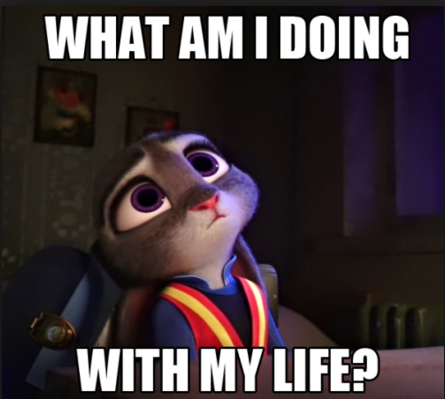
If I could boil down the essence of modern human angst into one core idea, I’d say we’re all facing a priority problem. We’re being relentlessly told we can have it ALL, when no…no we can’t.
Late Sunday night I got home from speaking non-stop for four days in Grand Rapids, Michigan. OMG! I love everyone and wanted to take them all home (but Feds have informed me this is technically ‘kidnapping.’ *rolls eyes*)
But, I work super hard to give it my all and, by the time I got home I was…DED.
*buzzards circling*
So, I am planning on taking a couple days off and…I need anxiety meds just to take a break…which is super sad but hey, at least I’m honest.
Nostalgia and Priorities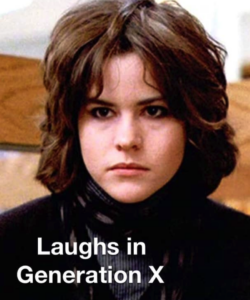
I’m from Generation X, and it’s tough not to miss a time where people didn’t talk on the phone while in a public toilet.
People my age have lived fully in two completely different worlds.��We were the bridge generation from the industrial world into the digital world. We played the first video games, but also remember being bored.
I’m old enough to recall a time when if you missed a T.V. show, well sucked to be you. Television stopped at midnight only to resume at 5:00 a.m. with morning news, faith healers, and Captain Kangaroo (not necessarily in that order).
Back in my day *waves cane* the phone would ring and we had ABSOLUTELY NO IDEA who might be calling. The highlight of my preteen life? When I got a phone cord long enough to extend the ENTIRE PHONE SYTEM UNIT into my room.
Cordless phones? Witchcraft.I mostly played outside in the dirt. We slinked through barbed wire to traipse through rattlesnake infested fields searching for buried treasure—finding only fire ants, rusted tools, and the joy of bull nettle.
Under my cult-leader-type influence, we set way too much stuff on fire (using that Chemistry set I got for my birthday). Being a super non-PC generation, we killed a lot of imaginary Russians, made ashtrays in art class for Mother’s Day, and we all wanted to be Bruce Lee.
***True Fact #1: Once knocked myself out with nunchucks. True Fact #2: Eventually got pretty good at nunchucks. True Fact #3: We all wanted ninja throwing stars for Christmas, and 98% of parents did not find this at all odd.
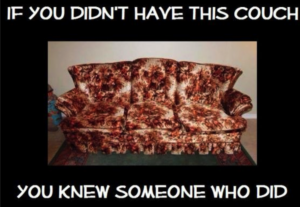
Yet, I also played a lot of Atari. I even created multiple small business ventures using child labor (little brother and friends). We pulled weeds, washed cars, picked up dog poop all to score enough cash to imbibe in Pac Man and ice cream at the corner store….
Until we ran out of money and the clerk kicked us out. Then we had to resume being bored.
In school, teachers introduced us to computers that didn’t do much of anything useful…except allow us to die of digital dysentery.
Life was comparably simple for kids and adults. Get up, do your job, stay out of trouble, and go to bed. Rinse, wash, repeat.
Mom was awesome keeping up with bills because there were only like…five of them. Television had three channels. People didn’t expect you to be accessible 24/7. If you called and no one answered?
You called…back.
Later.
“Priority” Overload
Contrast my life in 1988 with 2022? It takes everything for me not to pack up and move to Alaska. Except I’m too lazy to pack, hate being cold and am too lazy to pack.
But seriously. Not only are we bombarded with calls, ads, emails, real mail and junk mail, but we can’t seem to escape.
Ever.
Which is not exactly what’s so bad. What’s insane is we believe there’s a way to actually keep up with all this crap. But we can’t, because our world isn’t real.
When I was a kid, I spent time at other kids’ houses daily. Not BS ‘play dates’ where everyone dresses in ‘real clothes’ and cleans the house like it’s friggin’ Thanksgiving. All this so two sticky kids can whack each other with Jedi light-sabers that LOOK like actual light-sabers…instead of a stick.
The on-line world is filtered. Since websites thrive when people click, only the extremes are ever represented. Extremes get more clicks.
It gets awfully tiring being in the extremes.
We’re deluged with the extremely beautiful, thin, fit, smart, talented and the teenager who’s now a billionaire because he invented an app that makes a thousand unique fart noises.

And why am I even griping because the meme (above) is SO ME. I can have 6,000 pictures of my CATS!
Point is, when everything is a priority, then nothing is.
*writes this on sticky notes to post on forehead*
Because if I listen to the on-line world, I’m supposed to make millions of dollars, write books that fundamentally change the global culture, never age, have six-pack abs, a perfect marriage, rescue animals, save the rainforest, all while keeping a house so clean one could perform surgery in my bathroom.
The bathroom I refurbished myself using recycled tires, wire hangars, and wooden pallets. All held together with unenlightened dryer lint and non-GMO, vegan, eco-friendly glue I made…in my ‘free’ time or bought to support indigenous people from some place I can’t find on a map.
Priority? Save the planet THEN show off on Faceplant, Flitter, Sintrest and Instasham & TikMock.
Busy, Busy, Busy
I’m from the buckle of the Bible Belt and we have a saying. If the devil can’t make you bad, he’ll make you busy.
I’ve noticed that, unless I am mindful to unplug, get quiet and recalibrate, it is super easy for me to lose my way. Why? Everything is overwhelming. I hate my phone, am afraid of my mail and won’t shop until we’re down rationing toilet paper.
Priority Parallax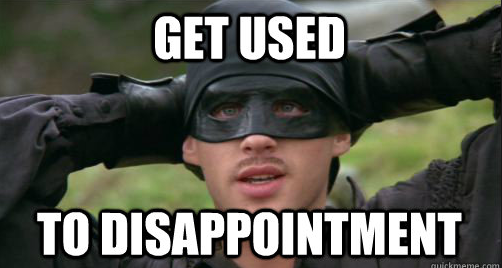
Objects on ‘To Do List’ might appear more important than they really are.
Every day is a habit of waking, taking QUIET time to reflect, then whittling everything down to what TRULY matters.
Or at least that’s the goal. Gotta start somewhere, right?
Because ‘having everything’ is playing life like Pac Man instead of chess.
In Pac Man you never win. It just gets faster and faster and harder and harder UNTIL YOU DIE. Chess? There is strategy, patience, willingness to ‘let go’ of even ‘important’ pieces to protect the most crucial one. In chess, you CAN actually learn, improve, grown and even win!
Go fig.
Entropy is real and alive and a beast in the digital age. Much we can’t control. Trust me. Target gives no figs I really don’t want eighty aisles of STUFF…especially when they only ever have two checkout lanes open, despite having forty.
*wonders if thirty-eight of the registers are real or props*
Only So Many Figs to Give—If It Isn’t TRULY a Priority?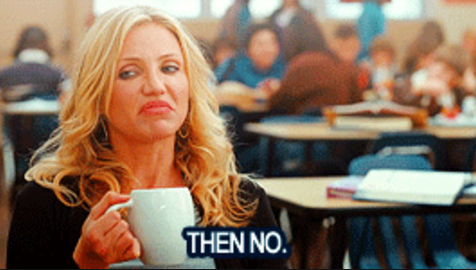
We might want to have everything, but everything is a lie. We can’t make all things a priority because then, well…welcome to Hell’s Tilt-A-Whirl.
Back to those crucial questions I mentioned in the beginning. If we’re exhausted, strung out, and feeling like losers, it’s time to stop for a priority check (and a dose of reality).
The media is a lousy measuring guide because we will never be enough. If we were, they couldn’t sell us more STUFF. They sell us crap we don’t need by making us feel like losers, that we are missing out on the AMAZING…when we really aren’t.
Most of life is in the average. We’re only capable of being remarkable in a couple places. Why? Because being remarkable takes focus and a LOT of hard work. So choose the PRIORITY, then learn to be cool with the rest.
My home is clean…enough.I haven’t finished all the painting and redecorating, but if the walls are that bothersome? Come paint and I’ll cook  .
.
A final caveat on this? If I want my writing to be exemplary, where does it rank on my ‘list?’ Is it a priority?
An actual priority?
Since I’m OCD and a neat-freak, I know NOT to clean anything until I write. I must do this because my PRIORITY is to be a superlative author/blogger, NOT Martha Stewart—for an entire HOUR—before my cats and entropy destroy everything.
If my writing keeps ending up at the END of my list, more hard questions.
Why am I procrastinating? What am I afraid of? Is my writing always last because I believe I don’t have what it takes? Remember noble distractions can mask as priorities.
What Are Your Thoughts? Then GET OFF MY LAWN! *SMOOCH!*
*SMOOCH!*Do you feel guilty about doing NOTHING? Struggle to get of the hamster wheel of To Dos? Does it seem like the ‘easier’ our world tries to make life the harder it gets? Is it an active effort to keep priorities in line? Do you find your writing constantly put off for…later?
Do you miss being unavailable? And people not being ticked off because you were unavailable? Sigh. What do you miss about the ‘good old days’? I get it, modern life does have a lot of good, but I do miss having nothing to do.
Tell me about your favorite parts of childhood, or whatever time gives you the rosiest glow. I want to hear about your My Little Ponies, playing HeMan, watching I Love Lucy learning to work in a wood shop. Whatever! Share your stories. I love hearing them!
Have a hard time doing anything for yourself? Because it feels too selfish. Once EVERYONE else is tended, THEN…maybe…
There are cool ON DEMAND classes below if you want to have fun honing your skills at your own pace. Otherwise? Feel free not to scroll down  . Working to make this easy.
. Working to make this easy.
What do you WIN? For the month of AUGUST, for everyone who leaves a comment, I will put your name in a hat. If you comment and link back to my blog on your blog, you get your name in the hat twice. What do you win? The unvarnished truth from yours truly.��I will pick a winner once a month and it will be a critique of the first 20 pages of your novel, or your query letter, or your synopsis (5 pages or less).
***Been out of town so will pick July’s winner next time.
CLASSES!***All classes come with a FREE recording
NOW ON DEMAND!ON DEMAND: Bring on the Binge: How to Plot a SeriesSIGN UP��HERE. Use New20 for $20 off
ON DEMAND: The Art of Character: Writing Characters for a SERIESSIGN UP��HERE��Use New20 for $20 off
Spilling the Tea: Blogging for Authors ON DEMANDSign up HERE and Use New25 for $25 off
The Dark Arts: Building Your Villain ON DEMANDSign up HERE New25 for $25 offLIVE CLASSESMore about to be listed.World Building 101: Playing ���Author GOD���THURSDAY, JULY 28th 7:00 PM E.S.T. to 10:00 P.M. EST HEREUse New15 for $15 offThe post The Priority Parallax: What’s TRULY Important? appeared first on Kristen Lamb.
July 20, 2022
Optimism Overdose: Sometimes Life STINKS
 Seriously. Nothing is THAT funny…
Seriously. Nothing is THAT funny…Optimism is essential for a healthy life, healthy vision in particular…sort of like Vitamin A. In fact, for the purposes of today’s post, optimism IS Vitamin A for AWESOME. Yet, especially since the pandemic made landfall we ALL know things have been far from awesome.
A lot has downright sucked.
I’m still teaching and fast-drafting and working because that is what professionals and—sigh, adults—do. But admittedly? It’s been a struggle. I’ve not left my house in 2.5 years because of the pandemic, multiple illnesses, and back in the spring we had to put my FIL in hospice.
Every day I have a husband or a son who might randomly start crying because everything is in the air. They feel powerless. Because they feel powerless, I want to cry because I want to make it all better and I can’t make it all better but also suck at this ‘crying thing.’
And there is always that inner voice saying, “Why are you so upset? What do YOU have to cry about? You could be a refugee starving in Africa and your children dying of dysentery while you’re running from warlords….WHEN YOU HAVE NO LEGS! You terrible awful person! For you, life is amazing and you are ungrateful.”
Maybe it is just me?
Call Me, Ms. Optimism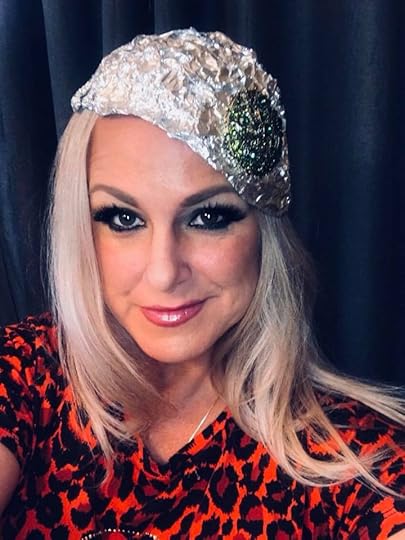 Look chic AND keep government from reading your thoughts…
Look chic AND keep government from reading your thoughts…In 2009, when my grandmother (who reared me, so essentially my mom) was diagnosed with early onset Alzheimer’s, I kept a good attitude. There were new medications, new treatments to slow down how quickly the disease could progress.
I’d bring Spawn (then a baby) to see her and they’d play Bubble Guppy games on my—okay, his—iPad. Brain games to combat the Alzheimer’s.
Then, my favorite aunt’s heath began failing, the woman who still did her own yard work even though she was ninety-four. Often, she’d be in the hospital at the same time as my grandmother, sometimes in the next room.
Optimism to the rescue. Hey, I can visit them at the same time. Read to them, bring flowers, bring the baby, and save time and gas.
In 2010, when my husband received orders to deploy to fight in Afghanistan, I maintained my optimism. We could do this! Sure, I was a new mom with a baby and a once-solid family that suddenly was crumbling and now my husband was heading for a war-zone, but I could do this.
Maybe I’d write a book about it.
On and on, death after death, loss after loss, through hurts, illnesses, and betrayals so deep I wondered if I might die…I maintained my optimism. Granted, I didn’t shine nearly as brightly, but the world had enough darkness. I didn’t need to add to it.
Nobody cared about my sob story.
Feeling Fixation
When it comes to being a writer, I’ve been on both sides of the fence. I’ve been the newbie who wrote when I felt like it, when I was ‘in the mood.’ I let everyone and everything get in the way of sitting down and putting words on the page.
Then, I learned that amateurs listen to their feelings and professionals get to work and get $#!@ done anyway.
I blogged no matter what. Someone died the night before? I’d cry after I posted and made word count. Deadlines gave no figs about feelings. If I wanted to be the best of the best, I needed to adopt habits of excellence.
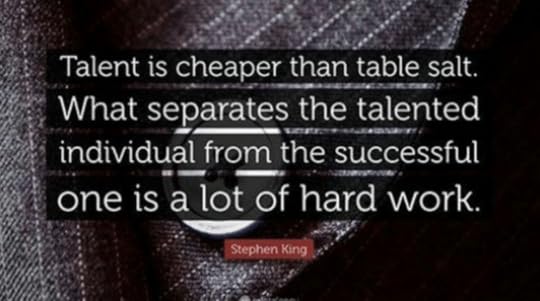
This is very true.
I’ve been blessed to meet and know many of my author heroes (mega authors, names y’all would KNOW), and I’ve seen them make deadlines and keep writing when their world was literally falling apart.
Writing through pain, through parents dying and children passing and health crises and on and on. Putting words on a page in hospital rooms, during dialysis, right before and after major surgeries.
Granted, I want to point out these incredible authors did this for more reasons than simply being professionals. Writing was also a way of easing their pain.
But, still…pretty inspiring.
Suffice to say, when I’d meet a new ‘aspiring’ writer who told me they couldn’t write or even think of building a platform because they were SO BUSY. Because of the day job, kids, and family they simply ‘couldn’t find the time’ (as if time was laying around in the couch cushions).
My response? Pick another profession.
I didn’t have a lot of sympathy.
To be blunt, I still don’t.We’ve become a culture driven by moods and that isn’t healthy. I can’t count how many writers I’ve encountered who claimed they wanted my help to be to be the next J.K. Rowling, George R.R. Martin, Stephen King, Sue Grafton, etc. etc. but after we talked? They lost all their enthusiasm because being a mega-author was just so much…WORK.
Yeah…it is.
Or they’d write the next great novel—because it is so EASY—if only they had the TIME. Well, we were in lockdowns for how long? And maybe I missed the new dark horse Nora Roberts, but…
No, success, like in anything, takes years of work. Life doesn’t stop in the meantime just because we have a dream.
Granted, optimism sometimes is the lone lifeline we will have to keep hold of that dream. Optimism in the face of loss, suffering, pain, and betrayal can often be the only thing that keeps us putting one foot in front of the other.
It’s been that way for me.
When people I loved, whom I believed also loved me did the unthinkable? Hurt me in ways I still can’t wrap my head around? I HAD to believe something good would come out of it or risk coming apart at the seams.
Light Through the CracksThere’s a meme/story I’ve seen passed around Facebook, particularly in spiritual circles. The idea of a broken vessel fashioned back together and how the light can shine through the cracks. Thus, the vessel is all the more beautiful for being broken, blah, blah, blah.
That is a lovely story, one full of optimism. It’s a story that I wanted to punch in the face…provided a story could be punched in the face.
Optimism OverdoseI come from a rough background and Viking stock. Was taught to have a pretty high tolerance for pain physical and emotional which can be good…but there is a fine line between being dependable and just plain being an idiot.
Getting up, getting to work, willing myself through even when I am mentally all over the place.
 Can SO relate…
Can SO relate…Back in my last major season of serious struggle, I defaulted to the methods that have gotten me through more tragedies than I care to relay, namely listening to positive books and willing myself to focus on what I am thankful for.
Surprise, surprise, it didn’t work. When the books that normally perked me up only sent me into depression or a rage, I downloaded a new book.
I $#@! you NOT, the first five minutes were full of that SAME STUPID ADVICE. Optimism is the answer. Focus on your blessings, on gratitude. Be thankful. Choose your attitude.
I lost it. Furious, I returned the book. I’d had enough. So help me, if anyone ‘sent in the clowns,’ I might have set them on fire. A daisy? I would have stabbed it. Our culture is dying because of a sugar addiction literally and metaphorically. Not only that but…
We are ALL TURNING ORANGE from too much Vitamin Awesome. And here we thought it was a bad spray-tan….And I get it. We are a society out of whack. One side is all doom and gloom and manufacturing reasons to be in perpetual despair/hysteria. Our social media feeds are filled with people enraged over some fresh drama de jour.
Rage porn is the new social addiction.
Humans are addicted to being outraged. They ‘spread awareness’ all over our feeds so much that our every nerve-ending is exposed and raw. We can’t bear to open Facebook, let alone consider using it to ‘build a platform.’ Twitter? It’s basically MORDOR.
And, since everything hurts, we shut down.
To combat the rage porn, the sugar junkies post happy thoughts of the day and inspirational quotes on Instagram. Filtered images and cropped lives and tips for better this and better that, and how to enjoy the most from soup and laugh at salad.
 Thanks Humor Train.
Thanks Humor Train.I can’t help but look at my piles of laundry, the floor covered in grit because Nelson—albeit the fluffy adorable love of my life—flings kitty litter like friggin’ fairy dust.
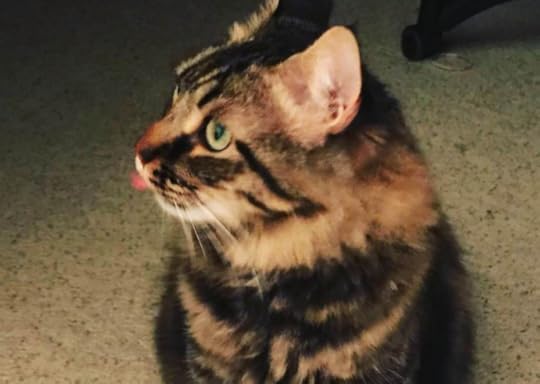
I can’t stop staring the stacks of mail I have to sort through, the closets I need to organize, the…the…the…and all I can think is…
Did I FAIL Adulting 101?
You know that dream where you showed up to a class you didn’t know you were taking and it was the day of the final? And you hadn’t studied because you didn’t even have the book because you didn’t even KNOW YOU WERE TAKING THE CLASS?
THAT was the class that taught you how to be a functional adult, Kristen.
#ItAllMakesSenseNow
But don’t worry, these folks write scads of books giving advice on how to ‘turn that frown upside down’…and I want to burn it all down.
ALL OF IT.
 This meme never stops being funny.Great People Sometimes Break Down
This meme never stops being funny.Great People Sometimes Break Down
I’m like all of you guys. We’re all wonderfully different, and we all view life through our own unique lens. My lens is as a Texan reared in the Bible Belt. I frequently joke to fellow Christians that 1 Kings 19:5-15 is the first documentation of an angelic visitation with a Snickers bar.
Angel: Elija, so want you to know He DID receive your message. ‘You want to die.’ Yeah, so, request denied. Also, The Big Guy sent me to tell you that you’re a great prophet…but a total diva when you don’t eat.��
My POV? We don’t need another coffee mug, screensaver or mouse track pad with inspirational quotes. I adore Ghandi as much as the next person, but some days…just stop.
For my fellow faith folks, sometimes we don’t need any more uplifting scriptures..though maybe we could modify them?
Oh the plans I have for you, plans to cry your eyes out, eat all the nachos and finally admit you miss that person who stabbed you in the back and that it is okay to miss them even if it is NOT okay to let them come back in and wreck your life again…Amen.
Book of Lambentations  …
…
#OhTheIrreverence
Lighten up. We’re all friends here.
Again, BALANCE the OptimismIt has been hotter than the hammered hinges of hell in Texas. I’m going through growing pains as a professional writer because publishing in the digital age is more slippery than eels in baby oil.
The point of all of this is, do not feel the need to always look on the bright side or for the silver lining. Embrace the darkness, move through it and give yourself permission to not be okay. Because, if I have learned anything through MANY seasons of being ‘not okay’ it’s that the more we avoid it, the worse it will be when the dam breaks.
Or is it the damn?
And ironically, I get that I am being somewhat of a hypocrite. Writing a post to make you feel better about not being okay. It is a mind-bender, so yeah just roll with it.
Life is a lot of things, a learning curve being one of them. I am still striving to balance the line between TOTAL FLAKE and WORK NAZI. If I locate it? Y’all will be the first to know.
What Are Your Thoughts on Optimism O.D.?Do you wonder if you missed the Adulting 101 classes too? Is it hard to look at social media sometimes? Either the whole world is crap and burning down or we have to learn how ten ways to fit yoga and green juice into our lives?
Do you miss being unreachable? I take time regularly off social media because I’m already aware I’m a nut…but STILL.
Is it hard to see what you do well, what you have accomplished? Do you have a hard time being negative, too? It’s hard for me to cry, to be angry, to confess that I don’t want to look at my blessings. I want to scream and eat tacos but that’s a good way to choke #DontDoThat.
Am I off base? I firmly believe in gratitude and optimism and how we do have a choice in where we focus, but the all-sugar-all-the-time seems just as toxic as the rage channel.
Sometimes I just want to be in pain, to feel it and be allowed to feel it. I don’t WANT another blog about how to fix it. And yes, again, I admit that is COMPLETELY hypocritical but whatever. I love life tips, but also believe a good day of ranting and��ax-throwing��might make me feel better.
What are your thoughts…other than I’ve finally gone off the deep end?
Hint: Been here all along 
I love hearing from you!
CLASSES!***All classes come with a FREE recording
NOW ON DEMAND!ON DEMAND: Bring on the Binge: How to Plot a SeriesSIGN UP HERE. Use New10 for $10 off
ON DEMAND: The Art of Character: Writing Characters for a SERIESSIGN UP HERE Use New15 for $15 off
LIVE ClassesSpilling the Tea: Blogging for AuthorsThursday, July 14th, 7:00-10:00 P.M. NYC Time. 2022 SIGN UP HERE and Use New25 for $25 off
The Dark Arts: Building Your VillainTUESDAY, July 19th, 2022, For more information, sign up HERE and use New20 for $20 off
World Building 101: Playing ���Author GOD���THURSDAY, JULY 28th 7:00 PM E.S.T. to 10:00 P.M. EST HEREUse New15 for $15 offWorkshopPractice Your Pitch: Master the Log-Line WORKSHOPThursday, August 4th, 7:00-9:00 P.M. NYC Time. This is a TWO-HOUR INTERACTIVE WORKSHOP!
For more information, SIGN UP HERE.
The post Optimism Overdose: Sometimes Life STINKS appeared first on Kristen Lamb.
July 11, 2022
World-Building: Captivate Readers & Never Let Go

World-building is essential for every story, but obviously genre will have a major influence on how much our story requires. Setting, though not technically world-building, can also add an entirely new level of dimension to our stories. World-building is setting, but taken to a whole new level.
This might be a personal pet peeve of mine, but I HATE books that forget to add any setting. There are few things more jarring than to make it 20 or 30 pages in only to realize the story is set in winter, or in the 19th century, or the character is in a magical forest.
Yes, I know a lot of these details I ‘should know’ from the cover/story description. But, when writing, assume we bought your book in a garage sale with no cover.
World-building can be subtle or it can be SO expansive that the world, itself, becomes a character unto itself. Think Dune, Dr. Who, any popular Marvel or DC line, Star Trek, Star Wars, LOTR, Stranger Things.
Yes, science fiction and fantasy are what most people think of when one mentions ‘world-building’ but techno thrillers like The Hunt for Red October or even crime procedurals like Rizzoli & Isles or NCIS also must create a world the audience understands.
Most people don’t automatically know how an autopsy works, or the inner workings of intelligence agencies and nuclear subs. This is where world-building is key.
World-Building Bible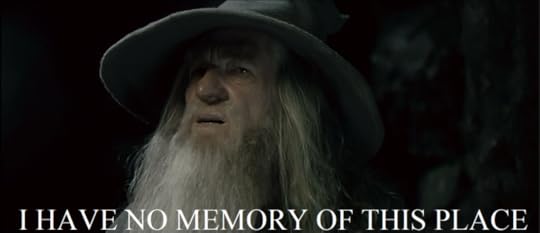
Before we go any further, for the record, I have an upcoming class, World-Building 101 because this topic is way too expansive for one blog post. Today, we are taking a 50,000 foot view of the subject.
The more expansive your world-building, the more important it is to create a world-building bible (similar to a story bible). This is to help you keep track of what’s what and what isn’t. The more world-building we have, then the better records we need to keep. If we break our own rules, the readers WILL notice and they can be very unforgiving.
In your bible, you’ll detail out any magic or technology, how it works or doesn’t. This will make it simpler for you to go back and refer to as you’re writing.
Spells & Superman Syndrome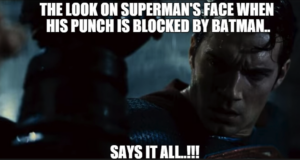
Fantasy can run the spectrum of how much detail is necessary. There are the quick ‘sword and sorcery books’ like the old Dragonlance series that really is pretty straight forward basic RPG-ish writing. Harry Potter? That is an entirely new level of detail. The more details, the bigger the bible.
Make sure magic has limitations and exacts a cost.
Characters that are too perfect are BORING. I call this “Superman Syndrome.” Superman was the first superhero as we know them in the modern age. Superman, over time, unlocked so many powers that, even the writers admit that it was incredibly difficult to tell new stories with this character.
He’s inhumanly strong, faster than a speeding bullet, could leap buildings in a single bound, and FLY and even REVERSE TIME!
Superman’s ONLY weakness was… kryptonite (an extremely rare substance, particles of his decimated home world).
ZZZZZZZ
In fact, back in the early days of DC, creators gave Superman every kind of power one could imagine and what happened? Readers (and writers) soon became bored.
Magic Needs Boundaries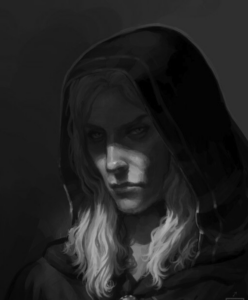 Raistlin Majere
Raistlin MajereThe same thing can happen with magic. If a character can do everything and anything with just the wave of a wand or a quick spell, then they’re never really in peril. Neither are those around them.
Since peril is the lifeblood of story, we can unwittingly kill our story before it ever begins by making any character too powerful.
Thus, when envisioning how magic works, make certain it has limitations, requirements and that is might not be as dependable and the character would like.
As an Old School D&D Nerd (before it was cool), magic was dependent on mana, a form of raw magic one might liken to The Force in Star Wars. The more inexperienced a magic user, the less mana they had access to. This is what a) limits their spell casting b) the power/efficacy of a spell and c) duration.
A magic-user needs to level up, obviously. But, at least in D&D, they can meditate or study to learn more magic, level-up, and replenish mana. Few things are more frustrating in a battle than for your magic-user to redline on mana (since magic-users generally are not fighters).
But, say we leave D&D behind. One of my favorite examples of magic having limitations was in a series called Carnivale. Ben Hawkins finds refuge with traveling carnies during the Dust Bowl. He can heal the sick and even raise the dead…but at a price. He must ‘steal’ life from another source to ‘give’ life.
There is a powerful scene where a young child drowns in a stock tank. Ben revives the child and, moments later, all the fish in the pond float, dead, to the surface. This is why Ben must be extremely careful how, when, where and why he uses his power.
World-Building and Technology
Obviously, science-fiction is another genre that uses a lot of world-building. Again, one can keep it simple, such as is the case with Star Trek. Yes, there is a bit of world-building such as tricorders and dilithium crystals, etc. but it isn’t very in depth and largely relies on suspension of disbelief.
If, however, we get into hard science fiction, that is an ENTIRELY different group of fans (comprised of scientists, engineers, and tech people). Should we create some form of tech, we will need a certain degree of plausibility.
These are the fans who hate/make fun of Star Trek and love The Martian. Since science, math and technology are part of their day jobs, they are a tough crowd. Like doctors trying to watch House or actual detectives trying to watch Miami CSI.
Thus, when choosing what KIND of science fiction you want to write, make sure to keep the audience in mind when creating new tech. I read a lot of articles from Popular Science and Popular Mechanics to give me ideas of up-and-coming technology I can riff off of.
For instance, in the story I am working on, if someone loses a limb, the techs can simply use DNA and essentially a 3-D printer to create one that is good as new with nerves, sinew, etc. While ‘out there’ it really isn’t SO ‘out there’ one couldn’t make a good argument this could eventually exist.
World-Building: Go Easy on the Names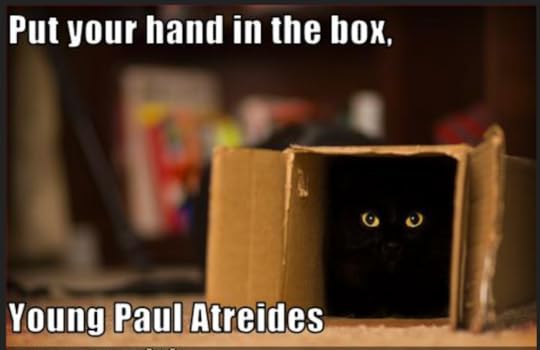
Whenever I read samples, in my The Write Stuff Special (going on now and only 10 slots until July 24th), I get a lot of fantasy and science fiction. One of my MAJOR bugaboos is too many names too quickly.
Remember, especially in the opening pages, we need to hook the audience. If we have to keep up with the name of five characters, a religion, a mountain range, a certain spell, a sword (that is called something other than ‘a sword’) it is a LOT of vocabulary hitting us at one time.
This will make it very easy to lose the reader. I am not saying we cannot have a zillion different names, just not on the first page, please. Also, when it comes to everyday items that are what we’d know on Earth, don’t feel the need to create new words for them.
Even on Earth, a cup has been a cup for centuries. A sword is a sword, a cape is a cape, etc. Though, obviously it is YOUR book, my recommendation is to save made up words for things that are unique. If it is a unique type of ceremonial sword, then fine, call it something else. Just remember your reader is there for a story, not to learn an entirely new language.
Even J.R.R. Tolkien called it a sword, a wagon, a road, a hat.
World-Building & Readers
Obviously, the goal of any kind of world-building is to a) help suspend disbelief and b) become a place where readers want to escape. This is where reading/watching series becomes critical. What are the books/series you love? WHY? Can you list elements that captivated your attention? WHY?
What sort of feel are you going for? Are there elements you can reasonably mix together? Hunter by Mercedes Lackey is a fantastic example of mixing ‘fairy tale’ monsters with new creations in a high-tech world. They use magic as well as traditional weapons like modern guns and knives and futuristic force fields.
A Little Bit of Hatred by Joe Abercrombie (Book 1 of The Age of Madness series) is much, much darker. There are kings and castles but also factories. So there is a bit of steampunk blended in. It is very, VERY graphically violent.
While Hunter is ‘violence lite’ and involves a far higher level of technology, A Little Bit of Hatred gives Game of Thrones a run for its money with gore, and the tech is all steam-based.
Not every reader has the desire to read something as weighty as Dune or Lord of the Rings. But, many do (obviously) or they wouldn’t be so enduring.
A lot is going to depend on your personal tastes. If you have not READ a lot of fantasy or science fiction with large-scale world-building, I’d hold off until you do. It is MUCH harder than just making up a bunch of funny-sounding names and tech.
Everything has Inherent Order
Believe it or not, even though we are allegedly ‘making things up’ we really aren’t. We need to draw from what readers already know so they have some sort of psychological tether. For instance, Dune is about rival houses, but the worlds eerily reflect the age of colonization and the battle over the Middle East.
Arrakis derives much of its beliefs, traditions, and ways of life from what might logically be derived from the Bedouin or other desert nomads. Since we mere Earthlings understand nomadic cultures, we have something to ground us.
Even if one is going to construct an alien language, language has inherent order and logic. Is your made-up language like English which basically just beat up other languages and rifled through their pockets for spare vocabulary?
Or is it more like other languages that have feminine/masculine/and neutral expressions? Even RUSSIAN has masculine and feminine.
Girl is pronounced DYEH-voosh-kah, and boy is pronounced MAHL’-cheek. Notice how, like many other languages, the feminine ends in an ‘ah’ sound. Word order will need to be consistent as well.
In English we have subject —> verb —> adjective—> direct object. Latin-based languages have subject —> verb —> direct object —> adjective.
I live in a white house (English), versus Vivo en una casa blanca or ‘I live in a house white’ (Spanish).
Even totally made up languages will need inherent rules. If we use this language for any amount of time, the ear will pick up on consistency and thus make it ‘seem’ more authentic because it will ‘sound’ like an actual language (just one we don’t understand). Keep this in mind for vocabulary as well.
Yes, I ‘learned’ Klingon back in my teenage years. One more thing that made being a Trekkie just that more fun.
World-Building Reality
World-building isn’t just for science fiction or fantasy. The regular everyday person doesn’t understand how crime scenes work (NCIS), how detectives do their job (Rizzoli & Isles), the way the bridge of a submarine runs (The Hunt for Red October), how pilots learn to fly fighter jets (Top Gun).
Even genres like mystery, thriller, suspense, will need a degree of world-building. I am from a military home and also have been a competitive shooter. Even NCIS sometimes irritates me.
You just positioned your agents on top of the building like that? You WANT a crossfire? Because this is how you get a crossfire.
It really is in the details.
If we set our story in another time period, appreciate that most readers (aside from history nerds) might not know the ins and outs of that age. Just be VERY CAREFUL about anachronisms.
Anachronisms are actually a bugger in pretty much all world-building. I once read a story that was set in King Arthur times (armor, knights, kings, castles), but a small boy was playing with a toy train. Um…NO. Unless the story is one of those creative hybrids I mentioned earlier? NO.
I hope this gives y’all a good start about what you need to keep in mind when building your world. Would love to see you in class, obviously. We’ll go into SO much more detail. World-building covers WORLDS so yes, it is a lot.
BUT, when done properly, authors have the pleasure of seeing fans in costumes, conventions, adding in their own fan fiction, etc. Our books can become a far richer experience that takes on a life of its own.
What Are Your Thoughts on World-Building?What are some of your favorite worlds? Obviously, I LOVE Dune but I am a huge fan of Stranger Things’ Upside Down. I remember inhaling Dragonlance books like candy because I was a nerd when that wasn’t exactly cool and loved the escape. That and I had a crush on Raistlin Majere, thereby proving emotionally unavailable men are weirdly attractive to many girls and women.
I LOVE hearing from you! And if y’all have topics you’d like me to cover, put them in the comments. I am over 2000 blogs in and it gets a bit tough after a while.
Remember I am running The Write Stuff Special and grab a slot because there are only ten available and they fill up QUICKLY. In depth edit of your first 20 pages for $55.
CLASSES!***All classes come with a FREE recording
NOW ON DEMAND!ON DEMAND: Bring on the Binge: How to Plot a SeriesSIGN UP HERE. Use New10 for $10 off
ON DEMAND: The Art of Character: Writing Characters for a SERIESSIGN UP HERE Use New15 for $15 off
LIVE ClassesSpilling the Tea: Blogging for AuthorsThursday, July 14th, 7:00-10:00 P.M. NYC Time. 2022 SIGN UP HERE and Use New25 for $25 off
The Dark Arts: Building Your VillainTUESDAY, July 19th, 2022, For more information, sign up HERE and use New20 for $20 off
World Building 101: Playing ���Author GOD���THURSDAY, JULY 28th 7:00 PM E.S.T. to 10:00 P.M. EST HEREUse New15 for $15 offWorkshopPractice Your Pitch: Master the Log-Line WORKSHOPThursday, August 4th, 7:00-9:00 P.M. NYC Time. This is a TWO-HOUR INTERACTIVE WORKSHOP!
For more information, SIGN UP HERE.
The post World-Building: Captivate Readers & Never Let Go appeared first on Kristen Lamb.
June 30, 2022
Formula: Writing to Formula vs. Being Formulaic
 Today’s watercolor.
Today’s watercolor.Formula, formula, formula. Today, we’re going to continue on from last week’s post, Writing Rules: How & Why We Play ���Follow the Reader��� and keep parsing Commenter Sonja’s excellent question.
For those who have slept since then…
I get the feeling as a new author that we���re being encouraged to adhere to certain structural norms. Like the advice to keep adverbs to a minimum, cut out extraneous such and such, start off punchy, stick with your genre expectations. Is storytelling becoming more of a product than an art form?�����But what is mastery? Is it something different from art?
COMMENTER SONJATYSON02
Since Sonja poses some excellent questions—and more than one—I have broken them apart.
Is storytelling becoming more of a product than an art form?
Short answer? Depends. We’ll start at the most common ‘complaint.’ If we follow structure, rules and genre, some worry it will be too formulaic. Thus, not art.
Or is it?
Formula is critical for everything, even writing. Thus, when someone asks, is storytelling becoming more of a product than an art form, the answer isn’t as straightforward as one might think.
There are fundamental rules we must learn in all forms of art. Once we learn the rules, we can break the rules. While art is subjective, there are elements deeply ingrained that we can push a bit, but all we are really doing is riffing off the extant rules.
 One of my first successful watercolor paintings.Art Has Rules & a Formula
One of my first successful watercolor paintings.Art Has Rules & a FormulaIn today’s post, you’ll see a lot of watercolor paintings. Namely because a) they took away Show & Tell after Kindergarten and I never got over the hurt and b) we can learn about one medium by studying others.
I’ve never had an art class in my life until last May when I hit a wall of serious burnout and took up painting watercolors. Which, from what I understand, is one of the most difficult mediums.
It is utterly unforgiving and paper if about $2 a sheet.
Why do I bring up watercolor?Because a lot of the rules in art apply to other forms of creative pursuits like writing. In painting class, we have a rule, “Life, Light and Line.” This is where the eye will instantly go when looking at an image…and in that order.
It is why, even if one paints the most off-the-wall abstract art, there is still a balance to it even if it is subtle and undetectable to anyone save experts. A regular person just knows they like it, not precisely why.
***The same happens in books. For instance, readers might not know what POV even is (last week), but they WILL sense we messed it up because they get so confused they give up.
Anyway, here is one of my first paintings I did in class. I’d been painting about a month (so four lessons). The painting was…unsalvageable. I was learning to do clouds and over worked it and AHHHH. Where does your eye go? Not to the boat? It goes to these funky I-have-no-idea-what-I-was-thinking clouds.
 Kristen’s OH DEAR GOD beach painting.
Kristen’s OH DEAR GOD beach painting.But, I was NEW. Give yourselves permission to be new, btw. Now, let’s contrast this with almost the same version of the painting after I learned the rules.
There are still LINES in this (below), but I used them in my favor. Instead of gross distractions, the lines are now subtle shadows the fence is casting across the sand. They provide information what time of day this is, where the sun might be, the angle of light….and all of that is subconscious.
Most importantly, they don’t completely take over the painting where you see little else.
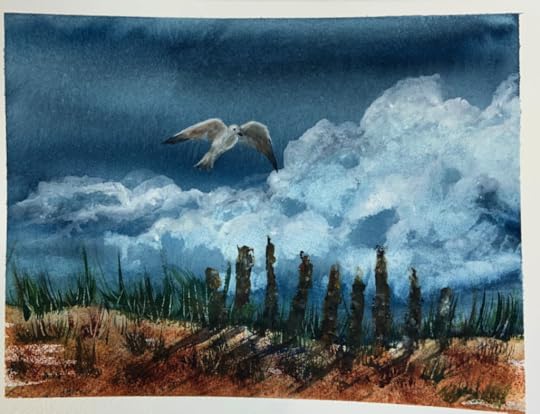
Yes, practice was key with becoming a better painter, but once I learned the essential rules of composition, if a painting went sideways? I knew precisely HOW to fix it.
Fixing Using FormulaFormula is fantastic if we run into a problem.
When I have a painting that is being difficult, I stop and ask questions.
Do I have even numbers (in art, odd numbers are more aesthetically balanced)? Too much repetition? Repetition is a bore, so do I have enough variegation? Did I inadvertently bisect my painting, which immediately draws the eye to a line across the center?
This (below) is a recent painting I did that had me CRYING halfway through. I took a breath and asked what ‘rule’ I was forgetting. Once I figured out where I’d gone sideways (everything was too centered), I was able to finish and love the way it turned out.
But this painting was 30 seconds from being in the trash. Rules and formula saved it.
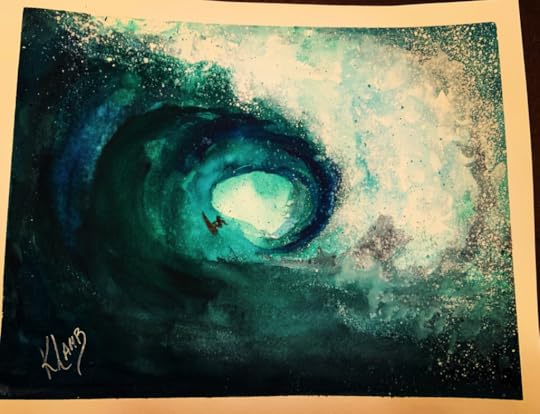
The same goes for writing. We might begin with a fantastic idea, start writing and then it goes off the rails. Maybe we write ourselves into a corner, have no idea why the beginning isn’t hooking. Why are beta readers getting confused?
That is when we look to the formula.
Formula is Life When structure goes WRONG.
When structure goes WRONG.Again, everything has a formula. Humans come in infinitely varied combinations, but we all have one head, two eyes, one nose, one mouth, one trunk, two arms, two legs…y’all get the gist. ANYTHING that varies from this structure (formula) needs a reason. Genetic issues, disease, accident, alien life form.
Same with structure. All stories have a beginning, middle and end. PERIOD. If one chooses non-linear structure, then it needs to be for a reason other than being clever or it will confuse/tick off the audience.
Three Act Aristotelian Structure is the oldest and the simplest which is why it’s what most readers prefer. Non-linear structure is a totally legitimate choice, but, like the triple-axel…
We BETTER nail it or it’s gonna HURT.
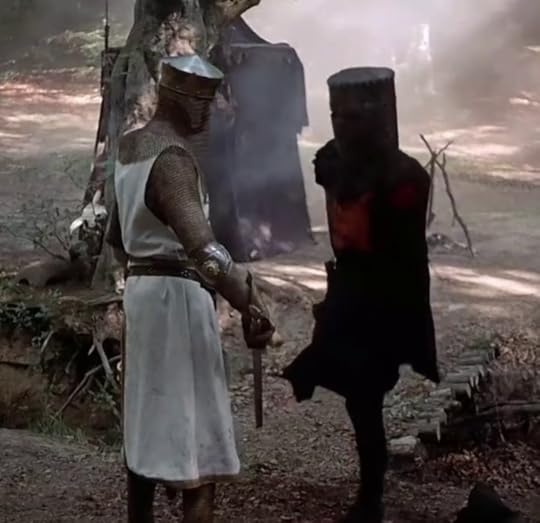
It is VERY easy to lose the audience if we use anything other than simple three-act structure. But, there are people like me WHO LOVE nonlinear structure when it is done well.
Here’s the rub, though.
If we don’t understand linear three-act structure, we won’t have non-linear structure. We’ll have a confusing mess readers want to toss across a room.
Again, everything, to a degree has a formula. We can be SUPER creative with tacos. Fish tacos, vegan tacos, soft tacos with prickly-pear infused chicken and a mango chutney…and we all recognize these as tacos.
But, get too weird?
Fried quail legs basted with duck sauce and folded in arugula leaves? Not tacos.
We are not sticking to ‘genre’ expectations. Anyone who wants tacos is going to be very confused with all the pasta.
Formulas and Genre
Genres have a formula and they create boundaries and constraints, yes. But only to a degree. Genres, in my POV, are a writer’s BEST FRIEND. When we know genre we a) know who we are writing for b) what their fundamental expectations will be (think about TACOS) c) and then we can have fun from there.
If you are trying so sell me a mystery, but no crime is committed in the beginning (fundamental to a mystery) then all this does is confuse those who want to read a mystery.
Science fiction has rules. Granted, there are many variations of science fiction from hard science fiction to cyberpunk to alternate history, dystopian, steampunk, time travel, on and on. But what are readers who LOVE science fiction expecting?

Depends on the sub-genre. General light science fiction involves tech, aliens, other dimensions, etc. No one expects the writer to explain how it all works. Contrast that with hard science fiction (The Martian) and that is a COMPLETELY different audience who WILL crucify us for getting the science (even theory) wrong.
Readers will also expect spaceships to follow maritime laws/structure (even if a unique variation). A Klingon war vessel still has a captain.
If I am writing a category romance, I know a) word count b) structure c) there better be a ‘happily-ever-after’ or the more modern ‘happily-for now’ or it AIN’T a romance.
But I can have a romantic science fiction. Romantic thriller. I can have time travel thrillers. What makes a thriller? Super bad thing happens at beginning and it is a race against time to stop BIGGER bad thing. Whether I do this in space or on the mean streets of LA doesn’t matter.
Genre tells me the boundaries of what is and isn’t “a taco.”
Formula vs. Formulaic
In my opinion, everything has a formula. The difference between formula and formulaic is in execution. Are we being predictable? Is the reader bored because they can guess the ending? Do we have too many cliches?
This said, I should be able to read a book and categorize it somewhere. Personally? I hate ‘general fiction’ a.k.a. ‘literary fiction.’ Yes, it is great for those who want to win awards and drink tea with their pinkies extended.
Me? I have a hard time finding anything I like in ‘general fiction’, which is why I shop according to my favorite genres (and so do most readers).
And no shade on ‘general fiction’ but would a restaurant that claimed they sold FOOD excite you? Okay, what kind of food? FANCY. Yes, but what kind? EXPENSIVE. Do you have tacos? No, FOOD.
*Passes “Food Restaurant” for the taco place, and why am I hungry?*
All ‘kidding aside’ literary fiction has its own unique structure. It still must adhere to all the rules, the only difference is the plot arc is subordinate to the character arc.
For instance, in Cormac McCarthy’s The Road, Man and Boy must make it to the ocean (goal). What isn’t important is if they make it. What’s most important is HOW they make it.
If they resort to snacking on fellow humans, then they fail since the whole literary existential point is “What makes us human? Why are we different than the animals?”
Formula & Let’s Get Jiggy with Genre
Once we understand structure rules, we can play around and bend and break rules…to a degree. Even if the story is non-linear, there will STILL be a beginning, middle and end.
I know some might be afraid genre will make everything too predictable, but that simply isn’t the case. In fact, some of the most fabulous books I’ve read in recent years are finding creative ways to blend genres, such as ‘Gaslamp Fantasy.’ Right now I am fast-drafting a dystopian cyberpunk (humor). Think Idiocracy.
Ultimately, if we ask the question, “Is storytelling becoming more of a commodity than an art form?” The answer is…it depends. What do YOU like to write/read?
Because the future of fiction (for those who want to make a living doing this) is going to favor those who can write well and write quickly. Most of the market is returning to the days of ‘pulp fiction.’
The ‘write a book a year’ author is going extinct.
Thus, what are your goals? And there is no reason an author cannot be prolific and still insanely talented and creative. My dear friend Vincent Zandri is a NYTBSA, USA Today BSA, and I long ago lost count of how many books he’s written.
Does Vincent produce a commodity? Sure. Anyone who wants to be PAID to do this has to create something others want to BUY. Is it art? Depends on who you ask?
Ultimately, we need to ask what YOUR readers want…then serve it to them.
What Are Your Thoughts on ‘Formulas’?Do you feel a little better about formulas? Understand the difference between formula and formulaic? Can you see how formulas help you connect with potential readers? How genres can unlock even MORE creativity?
Love hearing your thoughts, ideas and questions!
I LOVE HEARING FROM YOU!I’ll pick a winner once a month and it will be a critique of the first 20 pages of your novel, or your query letter, or your synopsis (5 pages or less).
CLASSES!***All classes come with a FREE recording
Writing RULES! NOW ON DEMAND!ON DEMAND: Bring on the Binge: How to Plot a SeriesSIGN UP HERE. Use New10 for $10 off
ON DEMAND: The Art of Character: Writing Characters for a SERIESSIGN UP HERE Use New15 for $15 off
ClassesSpilling the Tea: Blogging for AuthorsThursday, July 14th, 7:00-10:00 P.M. NYC Time. 2022 SIGN UP HERE and Use New25 for $25 off
The Dark Arts: Building Your VillainTUESDAY, July 19th, 2022, For more information, sign up HERE and use New20 for $20 off
World Building 101: Playing ���Author GOD���THURSDAY, JULY 28th 7:00 PM E.S.T. to 10:00 P.M. EST HEREUse New15 for $15 offWorkshopPractice Your Pitch: Master the Log-Line WORKSHOPThursday, August 4th, 7:00-9:00 P.M. NYC Time. This is a TWO-HOUR INTERACTIVE WORKSHOP!
For more information, SIGN UP HERE.
The post Formula: Writing to Formula vs. Being Formulaic appeared first on Kristen Lamb.
June 23, 2022
Writing Rules: How & Why We Play ‘Follow the Reader’

Writing rules tend to make newbies break out in hives. New writers, as I once did, believe that the word ‘rules’ automatically implies creativity is somehow stymied and worry the art will not flow.
Today, hopefully, I’ll show you not only why writing rules are so important, but why the rules are not necessarily about us. Like all creators, we are building ‘something’ that first and foremost serves a function.
Art is function’s partner.One can, for instance, build a glorious bridge that is, in effect, a work of art. But, if people cannot use the bridge to cross over a body of water or canyon without risk of falling to their deaths, the art is a failure.
Take the Hyatt Regency Walkway collapse. Two overhead walkways made of concrete and glass, filled with partygoers, crashed onto a tea dance in the lobby, killing 114 and injuring 216. Catastrophic design failure.
The rush to complete the project, skip protocols, and ignore certain guidelines led to one of the nation’s deadliest structural failures.
Whether it is a house, a building, a roadway, a car, creators design all these things with intent and function in mind. Designers have to anticipate HOW the user will engage with their creation to anticipate design.
Design, function and art all go together.
Granted, a story isn’t a building or bridge or a road, or is it? If we fail to appreciate certain guidelines, that could mean story death, as in readers give up.
Story is a house for the imagination, a bridge from the author’s creation to the mind of the reader, a road audiences follow to meet people and explore worlds never before conceived.
Rules Create the Experience
I’m pretty sure the least fun part of designing a beautiful bridge or skyway is doing all that math to test load-bearing capacities and tensile strength. Then, triple checking contractors to make sure they’re following along with guidelines.
Why not just do the FUN things? Think of a one of those future cars. As space age as they might look, do they not all need seats? Seatbelts? A steering wheel (or something comparable)?
Brakes? Would really suck to drive 180 mph and not be able to stop. Wait, how can one drive 180 mph with no way to accelerate? Need an engine or some form of propulsion.
And, no matter how ‘out there’ car designers get, they have to be somewhat careful. Make the design too weird, change too many standard functions at one time, and drivers won’t care how it looks.
It’s too bizarre to be any fun.
Rules are for the USER, not the DESIGNER.
This is why, if we look at buildings today, they all have a foundation, walls, ceiling, etc. Same with cars and airplanes and bridges. Even if we look at their earliest forms, the modern person (or toddler) would recognize a Model-T as a car, a biplane as an airplane and a fancy suspension bridge as a bridge. We would also ALL know their purpose, no matter how ugly or lovely.
But y’all might be thinking, “These examples aren’t art! Art is subjective!“
Okay, fair point.
I played clarinet for almost five years and my favorite was jazz. A lot of improvisation goes into jazz. But, have y’all ever heard a kid learning to PLAY a clarinet?
It sounds like someone is waterboarding a goose. No joke.
I had to learn how to position my mouth (embouchure) which is different for every type of instrument. Then, I needed to learn how to read music, learn to make the notes, the proper fingering to get the right key, how and when to breathe, on and on.
Granted, I did NOT have to learn how to read music (especially for jazz). Many musicians don’t, but they STILL follow the RULES.
I could improvise all day but if, beneath my ‘jazz’, there wasn’t at least some loose sense of musical structure, how well would I fare? What if I honked like an injured water fowl? If I was constantly off key?
Who would listen to my ‘jazz’? Better still, who would think it was ‘art’?
Writing Rules are for the Reader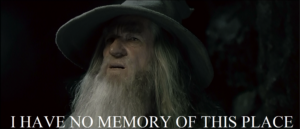
In my post On Writing: Why Mastery Should Matter to Authors, commenter Sonja Tyson had an excellent question.
I get the feeling as a new author that we���re being encouraged to adhere to certain structural norms. Like the advice to keep adverbs to a minimum, cut out extraneous such and such, start off punchy, stick with your genre expectations. Is storytelling becoming more of a product than an art form? …But what is mastery? Is it something different from art?
Commenter SonjaTyson02
And Sonja, don’t be embarrassed because this is an EXCELLENT question, one so good I am devoting the next posts to answer it. In the interest of time, we’ll parse out my answers.
I remember asking the same exact question when I was new. Unfortunately, I was also VERY rebellious and a know-it-all, which was bad. It made me (for far too long) an unteachable a$$hat.
It was only after years of half-finished manuscripts and shredded pages from critique groups (who, back then actually had real honest to God published authors), that I finally humbled up.
What I failed to understand in my writing youth was…say it again?
The rules were not for ME, they were for the reader.The rules, like the component parts of what we call a ‘car’, assisted in the experience.
I—me, personally—knew every character in my story. I’d created them, knew their backstories, their secrets, their issues. I had cried when they suffered, laughed at their witty dialogue, glowed with pride when they finally found true love or whatever.
The problem was, while I knew and understood ALL these things, the reader didn’t.
I’d been playing what I’ve dubbed as Literary Barbies (or Literary G.I. Joe for those who prefer). I had envisioned a world as rich as stepping on a holodeck—only for a party of one.
While my ‘novel’ made sense in MY head, everyone else was lost. No matter how much wordsmithery I put into that manuscript, it didn’t matter because I confused my audience.
The point of a novel is to take the reader on a journey, and if the reader falls out of our method of conveyance on page 10, they won’t BE THERE for our AWESOME ending on page 300.
So today, we will focus on POV, since most newbies have no clue what it is, how to use it or even that POV is the core way readers ‘follow’ our story. We need to understand what makes sense to them on an intuitive level (as in BRAIN STRUCTURE stuff).
Writing Rules about Perspective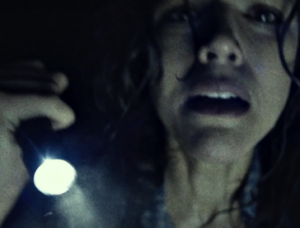
Some of you have heard this story but it bears repeating. When I finished my first ‘novel’ it was—I am NOT kidding—187,000 words. I literally remember thinking, “Well, this seems long enough. The End.” Two massive red flags there we’ll talk about in a different post.
I finally decided to join a writing group so they could, you know, clean up the scant few typos I might have had, or any punctuation errors *hair flip* .
Aaand…they slaughtered me.
One of the main notes that critiquers kept scribbling across my pages was ‘POV.’ All I ever saw was POV, POV, POV, POV.
Me: What IS THAT? Like Prisoners of Vietnam?
Finally, after weeks of getting POV scrawled across my pages, I rallied the courage to ask one of the senior writers what the heck POV was.
Point of View.
Through which character’s perspective is the reader experiencing the story? I have an oldie but goodie post of Point of View and why POV Prostitution (a.k.a. head-hopping) is bad for those who want further explication beyond I’m giving here.
POV is the most fundamental ‘writing rule’ we must understand if we want readers to not only want to set out on a journey, but finish it and love the experience. We must ‘follow the reader’ in that we need to think through their perspective not just ours.
How is the reader being fed information? What details are important? Who’s story is it? Why is this a story worth money, time, and attention?
The Basic P.O.V. Choices
POV offers a way that readers can follow our story. We (as the writers) choose the method of conveyance (POV). All POVs operate differently, but, if we don’t understand how they work or why we might choose one POV over another, then we run into problems.
Writing Rules for First-Person Wanna talk about ME!
Wanna talk about ME!Uses the pronouns ‘I/me/mine/my’ and is the most psychologically intimate of the perspectives. Which is why it’s been a super popular choice for the social media generation who’s used to being all up in someone’s biz.
First-Person breaks into two camps: The I Remember When and the Come Along with Me. Other than beating the hell out of the pronoun, ‘I’, this is where most writers will run into trouble.
***Nods to my earliest mentor, Saint Bob Mayer who taught me this and a lot of other stuff. He also managed not to murder Newbie Me.
In the I Remember When version, the verbs are all past-tense. Story is a recollection. The reader can relax, somewhat, because the narrator had to have survived whatever happened in order to be able to relay the story back to an audience.
Conversely, in the Come Along with Me, the reader doesn’t know what is going to happen because even the narrator doesn’t know what is going to happen.
These are SUPER EASY to accidentally jumble together. Verb tense is critical. The reader wants to know if they are in the past or in present.
I walked up the old gravel path that led to the family graveyard where more than bodies were buried.
I walk up to the family graveyard where more than bodies are buried.
Writing Rules for Third-Person
Third-Person Locked: This is where POV is through one character through the entire book and will use proper names or pronouns he, she, they, etc.
Rachel walked up the old gravel path that led to the old family graveyard where more than bodies were buried. She couldn’t believe it had come to this.
In this example, the entire story will be through the perspective of the MC, Rachel. If she cannot see or experience it through one of the five senses, then you’ve broken POV.
Third-Person Shifting: This is when we have more than one POV character who gets to hold the camera, but only in THAT POV CHARACTER’S scene.
There must be a clean break, then hand over the camera. Otherwise, readers can get confused. Same rules apply to each POV character as third-person locked.
Writing Rules for Omniscient POV
This is when GOD gets to hold the camera. Omniscient POV is very useful in epic battle scenes when a POV down on the ground or in the fray of space would become too confusing.
It makes it easier for, say, a reader to know which battle forces are surging or retreating. You (the author) can also sprinkle in information a character has no way of knowing.
NYTBSA Bob Mayer does this brilliantly in his Area-51 series. He’ll dip briefly into omniscient when explaining facts the reader needs to know about ancient Egypt (but that a character is unlikely to know). It’s efficient and seamless and the reader doesn’t notice.
Which takes mad skills to do well. It is imperative we understand the writing rules of how, why, and when to use this POV. We can’t just do a bunch of head-hopping and claim it’s omniscient.
Ken Follet is another master at wielding omniscient POV. Check out his epic historical drama Pillars of the Earth.
There are, however, problems with omniscient. First, it is a bugger to write without devolving into head-hopping. Secondly, while it used to be very fashionable before the 20th century, it comes across as cold and emotionally distant to the modern reader. Thus, it can be subconsciously off-putting.
Thirdly, did I mention it’s a bugger to write?
***For the record, I am teaching a never-before-taught class on WORLD-BUILDING and we’ll parse omniscient in that class.
The Odd Duck…Second Person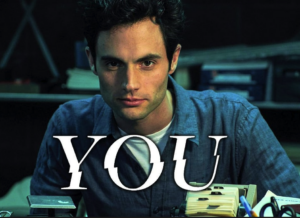
This POV is the rarest of all. This is why knowing the rules helps us break the rules and create art. In 2nd person POV, the pronoun is you. It’s very…creepy. The audience feels either lectured, attacked, or invaded.
Caroline Kepnes harnessed this bizarre POV to write the mega successful book-and-now-Netflix-series, You which is about a Joe, a bookstore clerk who fixates on a NYC writing student to the point of deadly obsession. Here is the second sentence in the opening…
You smile, embarrassed to be a nice girl, and your nails are bare and your V-neck sweater is beige and it’s impossible to know if you’re wearing a bra but I don’t think you are.
Joe the Stalker
You gotta admit, second-person WORKS. It is seriously unsettling, which is perfect for the genre/story.
Head-Hopping
Quick example:
Rachel walked up the old gravel path, her sky blue eyes unfocused, red from crying. Walter was waiting in the family crypt, garrote in hand. His stomach roiled at the thought of killing her. She was a part of him. But there were larger things at stake. She couldn’t uncover his secret. Rachel needed to know, to understand why her sister’s funeral had been so rushed. Had someone paid off the M.E.? Wouldn’t be the first time her father pulled political strings to get away with murder.
First of all, according to writing rules, unless Rachel is holding a mirror, she can’t see her own eyes. Then, she doesn’t know about Walter hiding in the crypt, so we are suddenly in his head. Then we are suddenly back in Rachel’s head. While the story is intriguing, this is where a reader would start to get confused.
Who’s head are we in? Is Walter her father or someone else? If we do this long enough, it can very easily frustrate the reader. If story is mental conveyance, a journey into an imaginary world, then this can be a miserable ride. The reader will get motion sickness and quit.
Then, all the art in the world doesn’t matter if no one finishes the book.
See, the AUTHOR knows who is whom and what is what, but POV is designed to deliver the author’s world into the reader’s imagination.
If we fail to follow the reader (what their experience will be) we can unwittingly strap them into Hell’s Tilt-A-Whirl.
Writing Rules for POV & Art of POV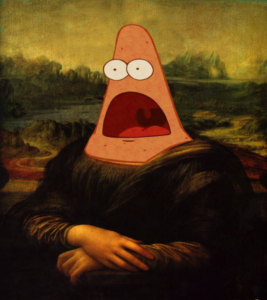
Earlier, I mentioned Caroline Kepnes, and how, because she understood the strengths and weaknesses of second-person POV, she could use that for art.
Though this next technique was almost unheard of before 2000, it has become very common in the past ten years. When we understand each POV and what it offers, we can blend different POVs.
Author GENIUS T. Jefferson Parker used a mixture of third-person and first-person in his novel, and Book 3 of his Charlie Hood series, Iron River.
WHY? His MC is in third-person, but the antagonist is in first-person. Jeff wanted the reader to feel deep and profound empathy for a good person doing the wrong things for what he believed to be the right reasons.
By using first-person, the reader connects more intimately with the antagonist because we (the reader) are the antagonist for a good portion of the book (I, me, I, me).
You might also want to mix POVs to hide the identity of a killer, terrorist, bad guy. Helps in a mystery. It is also great for creating an unreliable narrator.
I hope I have demonstrated here how rules beget the art. And, maybe some of you might play around with different POVs and combinations. Just remember, the more POVs you have, the longer your book will be.
It takes time for the reading audience to care about a character, so they will need enough ‘story’ to get to know and give a fig what happens.
What Are Your Thoughts on Writing Rules?Do you feel a little better about the ‘writing rules’? Can you see how deviating too far would confuse the reader? I love hearing your thoughts, ideas and questions!
See, Sonja! Ask and you shall have!
I am all for you guys being creative. Break writing rules! It is how we get new and amazing forms of expression. Just bear in mind that you have to ‘follow the reader’ and envision HOW they’ll experience your world.
I LOVE HEARING FROM YOU!I will pick a winner once a month and it will be a critique of the first 20 pages of your novel, or your query letter, or your synopsis (5 pages or less).
May’s Winner and thank you for your patience. Winner is michaelbillington9 so please send your pages to kristen at wana intl dot com. A page is 250 words a page. You can go a little over just don’t get crazy, LOL. Double spaced, Times New Roman and one-inch margins. Please put CONTEST WINNER in all caps so I SEE it!
CLASSES!***All classes come with a FREE recording
Writing RULES! NOW ON DEMAND!ON DEMAND: Bring on the Binge: How to Plot a SeriesSIGN UP HERE. Use New10 for $10 off
ON DEMAND: The Art of Character: Writing Characters for a SERIESSIGN UP HERE Use New15 for $15 off
ClassesSpilling the Tea: Blogging for AuthorsThursday, July 14th, 7:00-10:00 P.M. NYC Time. 2022 SIGN UP HERE and Use New25 for $25 off
The Dark Arts: Building Your VillainTUESDAY, July 19th, 2022, For more information, sign up HERE and use New20 for $20 off
World Building 101: Playing ‘Author GOD’THURSDAY, JULY 28th 7:00 PM E.S.T. to 10:00 P.M. EST HERE Use New15 for $15 offWorkshopPractice Your Pitch: Master the Log-Line WORKSHOPThursday, August 4th, 7:00-9:00 P.M. NYC Time. This is a TWO-HOUR INTERACTIVE WORKSHOP!
For more information, SIGN UP HERE.
The post Writing Rules: How & Why We Play ‘Follow the Reader’ appeared first on Kristen Lamb.



